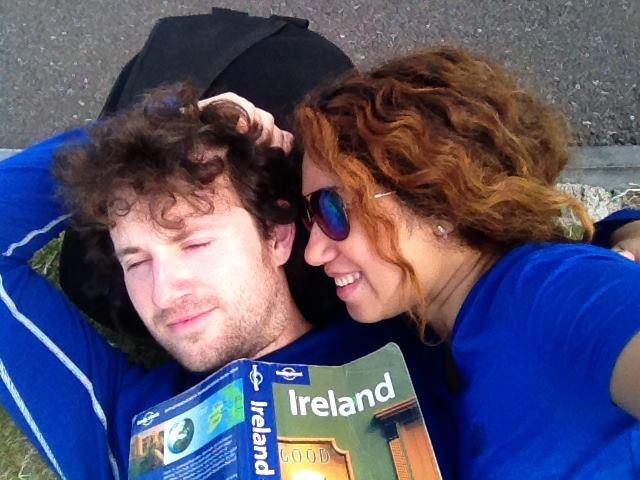41 Ingenious Tips To Save Tons of Money On Accommodation When you Travel
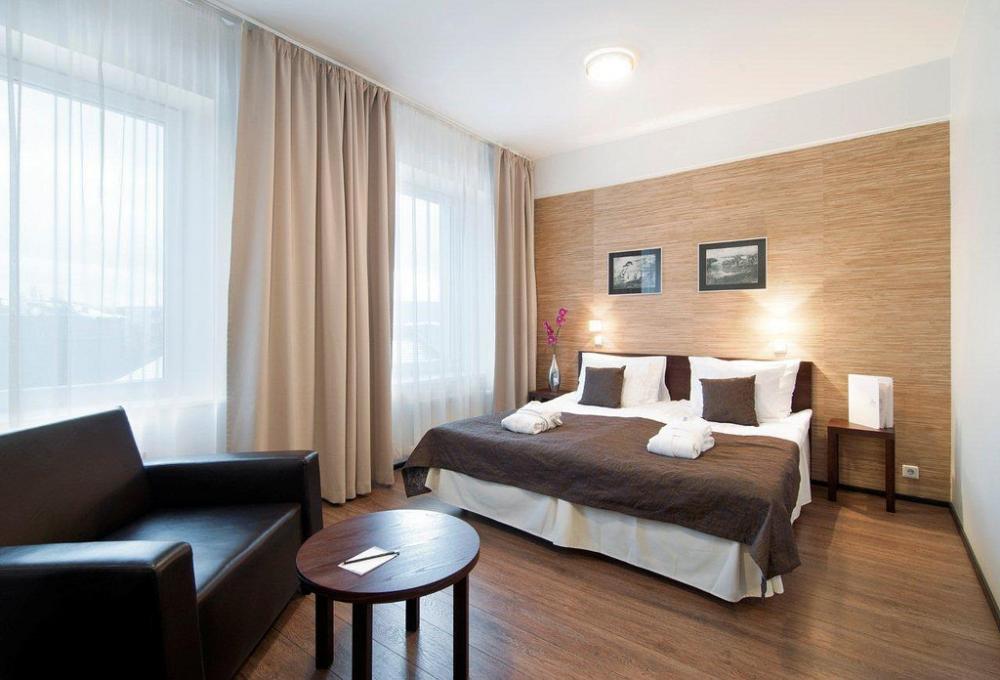
In our article on how to sleep for free while travelling the world, we covered a multitude of strategies that travellers can use to sleep completely for free while travelling.
If you want to drastically reduceyour accommodation expenses, these are some of the techniques and strategies that you'd want to be thinking about familiarizing yourself with.
However, for most travellers, many of these free sleeping methods may be a little on the extreme side, more reserved for emergencies when funds are critically low or when no other options are available, rather than for everyday use on the road.
We think it’s fair to say that most travellers are probably just looking for paid accommodation that fully meets their needs at the lowest possible financial cost. Value for money is what most people are looking for.
But we would encourage you to not only seek value for money when choosing accommodation, but more specifically, value for money within the lower end of the accommodation price spectrum.
In other words, try to find the cheapest place to stay that still adequately meets your needs and know how to distinguish your needs from your wants so that you don't end up trying to satisfy those too.
But why go for the cheaper rooms? Why not splurge on accommodation if you have the money?
Let's talk about some of the reasons travellers choose budget or backpacker accommodation over other types of lodging such as flashpacker, mid-range and high-end accommodation.
Why choose budget accommodation?
No matter what country it is that you’re travelling in, there are many advantages that come with choosing budget accommodation as opposed to other more expensive types of lodging.
The main advantage for many travellers and especially cash-strapped travellers, would be the money saved as a result, which can then be allocated to more travel experiences and can obviously help to greatly extend the lifespan of your trip before funds start to run critically low.
For some travellers it’s not even about the money-saving benefits and hence you’ll still often see fairly affluent travellers choosing budget accommodation instead of the more extravagant properties that they could easily afford.
One reason for this choice among affluent travellers is that budget or backpacker accommodation can often offer travellers a more down-to-earth and communal experience.
Expensive hotels and luxury resorts can sometimes have an insulating or isolating effect, where you find yourself in an ivory tower of sorts, shielded from the real world and the local people that live out their daily existence in another realm beyond the outer walls of the property.
Many holidaymakers spend a huge chunk of their trip on the premises of their resort, hotel or apartment complex, lounging on reclining chairs by the swimming pool or drinking in the bar and thus not getting much immersion in the actual place they came to visit.
Budget accommodation options such as hostels on the other hand can give travellers the opportunity to meet and socialize with new people from all around the world and this can be a vital amenity for those who are travelling solo and are in need of companionship.
Humble homestays or family-run guesthouses can give travellers a window into the daily life and culture of the local people who they’re staying with, often yielding revealing insights that they would never would have had if they had stayed in more upscale accommodation.
Many travellers who can afford the more expensive lodgings may also just see them as a waste of money that could be better allocated.
If one’s basic needs for security, privacy, cleanliness and a comfortable place to spend the night can be satisfied by paying $5 a night, then why spend more?
For many travellers, accommodation is not such an important part of the travel experience. It solely serves a practical function as a place to lay the head to rest and recuperate at the end of each day, during which the real travel experiences and fulfilling adventures are being had.
Many travellers do not feel that they derive a significant amount of additional value or benefit by staying in a palatial room that boasts expensive hardwood furniture, magnificent interior décor, four-poster beds, luxurious down quilts, walk-in closets, electrical appliances, flat-screen T.Vs, air-conditioning, a balcony with sweeping vistas or a property that has amenities like a gym, spa, sauna and infinity pool….. or at least not enough additional benefit to justify the extra cost. The returns seem marginal when compared with the huge increase in price.
What you also need to realize is that ultra low-budget accommodation is definitely not always synonymous with dirty, seedy or unsafe.
In our experience, a cheap room only very seldom means bad news like bed bugs and other insect infestations, paper-thin walls, doors with no locks, thieving staff members, squalid or mouldy bedrooms and bathrooms, claustrophobic dungeons and other horrifying lodging conditions that can ruin a trip.
In truth, you’ll nearly always be able to find a place that's rather agreeable for the same rock bottom price that you’d pay to stay in one of these nightmarish properties.
On more than one occasion during our travels we managed to bag a sumptuous double room for just $6 a night due to low demand at the time and our bargaining efforts. We were over the moon with those deals.
In fact, we have managed to maintain an average daily accommodation expenditure of just $3 per person per night while travelling throughout India and numerous countries in Southeast Asia over the past three years and have been (mostly) delighted with the rooms that we stayed in.
No matter where we go, we virtually always seem to find a spacious, clean, comfortable double room or a dorm bed that comes with free WiFi and all the other amenities that we require for about $3 per head per night.
The only exception so far was Myanmar where our accommodation expenditure jumped to $4 per person per night.
So with all that in mind, you're probably wondering how you too can find these super cheap rooms and get the best deals on accommodation while travelling.
Aside from the obvious advice of travelling to cheaper destinations, here are our 26 best tips for saving money on accommodation while travelling.
General tips for cutting costs
#1 - Timing is everything

Most popular destinations around the world certainly do not receive consistent visitor traffic throughout the year.
The volume of traffic tends to fluctuate considerably, with visitor numbers mostly dictated by the seasonal weather changes and holiday periods.
Important festivals or events that are happening in a destination can also cause sudden spikes in visitor numbers and these are often the times when you won’t be able to secure a room at all, let alone a cheap one, unless you’ve had the foresight to book well in advance.
Generally speaking the three best times to visit a destination if you want secure the lowest room rates are…
The off-season
The period of greatly reduced visitor numbers that many destinations experience is often referred to as the off-season, off-peak season or low season and normally coincides with the time of year when the weather is at its lousiest.
For example in Southeast Asia, many beach resorts become almost deserted during the monsoon season, which brings strong winds, frequent heavy rains, thunderstorms, and turbulent waves.
These conditions are in great contrast to the placid, cerulean waters and days of endless sunshine that characterize the peak season for visitors.
As a result of the shortage of visitors during the off-peak season, many hotels, restaurants, travel agents and other businesses catering to tourists shut down temporarily or use the time to perform important maintenance work or to refurbish their properties in preparation for the next busy period.
While travelling in the off-season might have its downsides like a higher likelihood of inclement weather and fewer hotels, restaurants and other amenities open for business, there are many upsides too.
You will likely have a lot more peace and quiet, a chance to better appreciate the true underlying character of a place without tourists overrunning it and perhaps even a perfect opportunity to update your travel journal without the distractions of sunny weather, ice-cream and bikini-clad women.
In hot countries, the cooling monsoon rains can even be a boon, where a heavy late-afternoon shower can offer a welcome respite from the sticky heat.
Perhaps the biggest advantage of off-season travel though is the money-saving opportunity; the steep plummet in demand and low room occupancy rates during this period means that room rates can often be greatly reduced.
Even if the rates are not officially lowered, you will often find that hotels will be less likely to decline requests for a special discounted rate during this period.
During the off-peak season, we once stayed in a cosy little bamboo hut with a comfy bed, mosquito net and ceiling fan for just 100 rupees per night ($1.56) while staying on Little Andaman, an island belonging to the Andaman and Nicobar Islands archipelago in the Indian Ocean. .
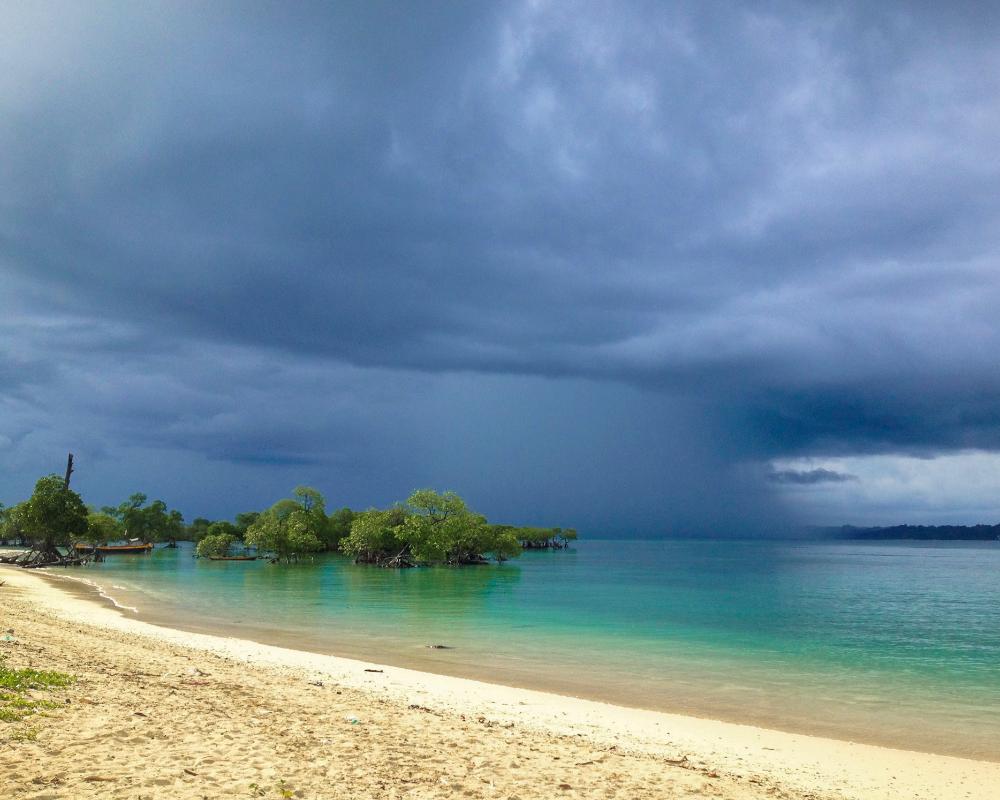
Split between the two of us, the cost for our accommodation worked out at just $0.78 per person per night. That’s a good example of the kind of deals that travelling in the off-season could bag you.
You can find out the low season period for a given destination in travel guidebooks, online destination guides, Wikitravel articles, by asking other travellers or sometimes even just by looking at weather charts that display data on rainfall levels throughout the year.
If you see that a destination has a distinct wet season with much higher levels of rainfall than at other times of the year, there’s a pretty good chance that that’ll be the low season for tourism.
This is especially true if it’s a coastal area, as we all know that most people travel to beaches for sunshine and placid weather, not heavy rains, strong winds and stormy seas.
Shoulder season
The shoulder season is defined as the period between peak and off-peak seasons. It can be the period just before or just after the peak season.
During this period the weather won’t be as lousy as it is during the true off-peak season but there’ll still be fewer tourists around.
Room rates will usually be lower than in the peak season, although perhaps not quite as low as in the off-peak season. The shoulder season is a nice compromise between the two extremes.
Weekdays including Sundays
Weekends naturally represent leisure time off work for most hard-working 9-5ers. Many couples and singletons alike will be looking to make weekend getaways, often to the very destinations that have also piqued your interest and they’ll snap up all the available rooms in town fast.
We’ve stayed in several destinations, such as the Cameron Highlands in Malaysia, where the room rates spike every weekend (Fridays & Saturdays). If your destination is sensitive to such oscillating rates, try to arrive Sunday through to Thursday for the best deals.
When it comes to business hotels, the situation may be completely reversed, where hotels fill up with business travellers on the weekdays and prices rise accordingly during this period.
In these hotels the weekends are often the best times to bag a cheap room and especially Sundays. The summer months can also be a low period for business hotels with reduced room rates.
However, if you’re just travelling for leisure purposes, you probably won’t be visiting too many destinations that are full of business-oriented hotels so you shouldn’t have to worry about this phenomenon too often.
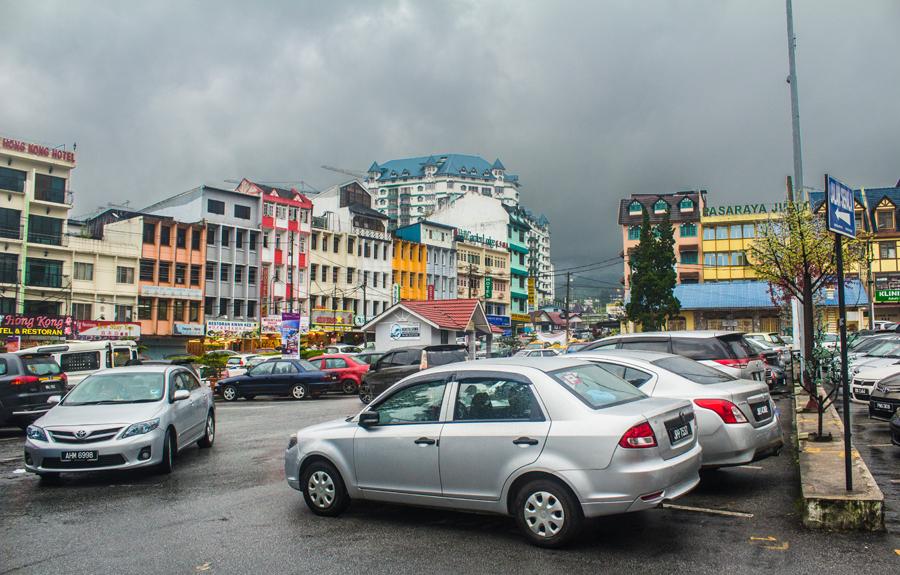
Late in the evening – Walking into a property late the evening can often be a great way to bag a cheap room.
As the day wears on, property managers will be under increasing pressure to sell their unoccupied rooms and it’s better for them to sell their remaining room(s) at a discounted rate rather than not managing to sell them at all.
If you can’t bag a discount by turning up late in the day, you might at least get an upgrade to a better room for the same price.
Arriving too late in the evening or in the early hours of the morning however can be counterproductive, as some properties will have locked up for the night and you could be left stranded on the streets until the town wakes up.
This has happened to us on several occasions when taking overnight buses and trains that arrived in our destination before dawn. We once had to spend the night homeless on the streets in Pleiku, Vietnam while motorbiking from Ho Chi Minh city to Hanoi.
Arriving too late in the evening can also mean that you won't have enough time to do a proper investigation of all the sleeping options in town on the day of your arrival and for that first night you may have to settle for a room that's out of your budget.
You can of course find a cheaper room and move into that the following morning but you do lose a bit more money as a result of that previous night spent in a room that was out of your budget.
#2 - Choose the cheapest sleeping option for your travel configuration
.jpg)
If you happen to be travelling solo, a private single room in a budget hotel or cheap guesthouse will often be the most economical option for spending the night.
Even cheaper though if they're to be found in your destination are dormitory beds (usually bunk beds), which are most commonly found in hostels.
The rule of thumb is that the bigger the dorm, the cheaper the bed, so a bed in a 16-bed dorm will normally be cheaper than a bed a 4-bed dorm. Dorm beds nearly always work out cheaper for solo travellers than private single rooms.
While dorms are usually best when you're travelling solo, they're frequently not the cheapest option if you're travelling with a partner or in a small group.
In this case, you will often be able to secure a private double, single or triple room at an even lower cost per head than what you would have been paying for a dormitory bed as a solo traveller.
In Southeast Asia for example, it’s often possible to get a spacious double room with en-suite bathroom and free WiFi for just $5 per night and sometimes for as little as $3 per night under certain circumstances.
Split that cost among two travellers and you’re paying less than $2.50 per person per night. That’s even less than the usual cost of dorm beds in the region, which normally go for $3 – 6 per night, with a free breakfast usually included at the upper end of that price range.
Travelling in trios can also work well for saving money on lodgings, although we have less experience with this. The few times we tried it in India, there was not always the possibility of being allowed to share a double room among three people.
The hotels would normally try to upgrade us to a triple room, which would increase the price of the room accordingly, making it no more economical than travelling in pairs and sharing a double room.
If you’re travelling with your girlfriend or boyfriend, another trick you can try is sharing a private single room together, since these are virtually always cheaper than double rooms. It’ll be a little cramped with the two of you squeezed into a narrow single bed and won’t be ideal but it’ll save you money.
Unfortunately however the trick doesn’t always work in practice. We’ve found that many guesthouses will try to increase the rate for a single room if you want to put two people into it, even though it’s ultimately the same room that you're renting.
Some places simply won’t allow a couple to share a single room, probably because they want couples to take one of their double rooms so that they can reserve the single room for solo travellers. However, it’s usually worth giving it a shot anyway as you may get lucky.
If you want to try really pushing the boundaries, you can try to share a dormitory bed with your partner to halve costs. Again, most hostels won't allow this but you may have success occasionally.
There are of course many other travel expenses that can be halved by travelling in pairs, saving you money in many other expense categories, but that is a topic for another article.
#3 - Choose simpler accommodation
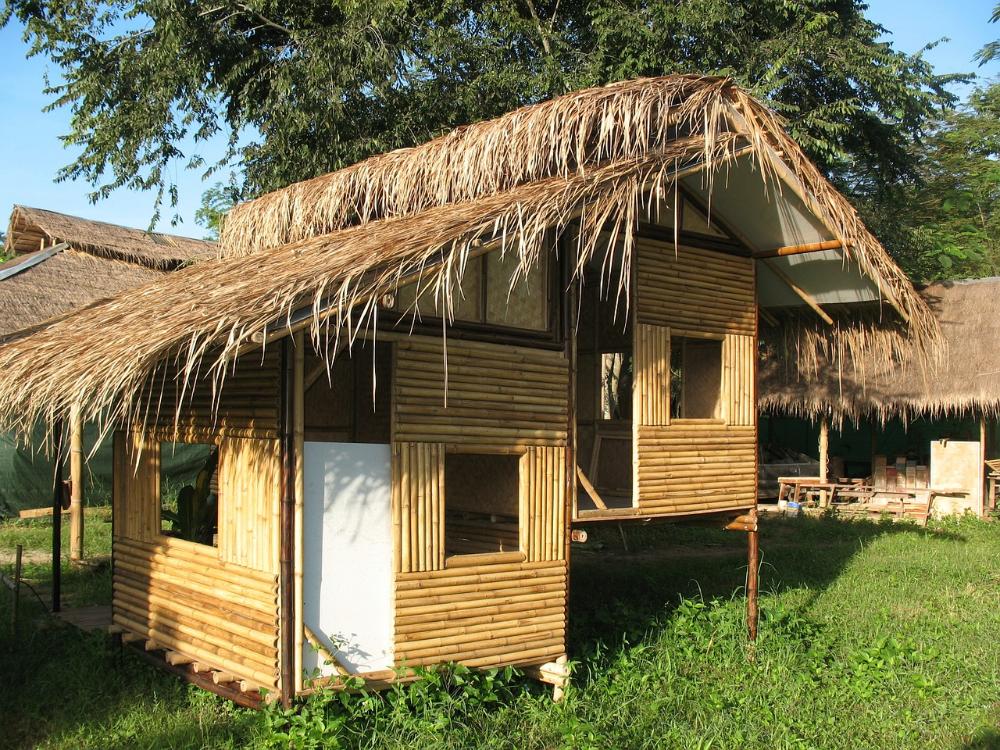
If you want to save real money on accommodation, you simply have to be willing to give up most of the superfluous luxuries that come with the more extravagant hotels, boutique resorts, luxury villas, fancy bungalows and so on.
The main purpose of accommodation is to protect you from the elements and predators so that you can get a good night’s sleep without having to worry about succumbing to hypothermia or getting attacked or robbed.
It also gives you a safe place to keep your luggage during the day when you go out to do activities and a place to wash and use the bathroom.
Some amenities like free WiFi are definitely nice to have but in truth, you don’t really need much more than an acceptable level of security, privacy, comfort and cleanliness to get by.
And since you can have a room that provides all of those things for less than $5 a night in some countries, why spend more?
Start choosing to stay in hostels, homestays, family-run guesthouses, beach huts and campsites instead of in extravagant properties and you’ll start saving a ton of money.
The sacrifices that come with simpler accommodation really aren’t all that great, especially if you’re only staying short term. In fact, most of the things you will have to give up are luxuries that you could do easily without and renouncing them will actually be liberating.
Here are a few choices you may have to make if you want to start getting cheaper accommodation:
- Choosing a fan instead of AC in hot countries (we actually prefer a fan 95% of the time with the only exception being when temperatures soar above 35°C )
- Foregoing certain amenities like an ensuite bathroom, king size bed, hot shower, balcony view, T.V, refrigerator, work desk, kettle, iron, hair dryer, free towels, free WiFi etc. (you can get by without all of these things)
- Sleeping in a communal hostel dorm with a shared outside bathroom (the bigger the dorm the cheaper usually)
- Opting for no included free breakfast (it’s usually overpriced anyway if you look at what it adds to the room cost)
- A mattress on the floor instead of on a bed frame (no big deal)
You should also be willing to consider more unorthodox types of accommodation if you want to find the real bargains.
For example, have you ever stayed in a traditional tribal house? Or in a tree house? A yurt? A bamboo hut?
These alternative accommodation options may not always have all the facilities and amenities that you might expect to find in purpose-built hotels and guesthouses, but staying in one can be a fun and exciting experience in its own right and you will often find that the prices are unbeatable.
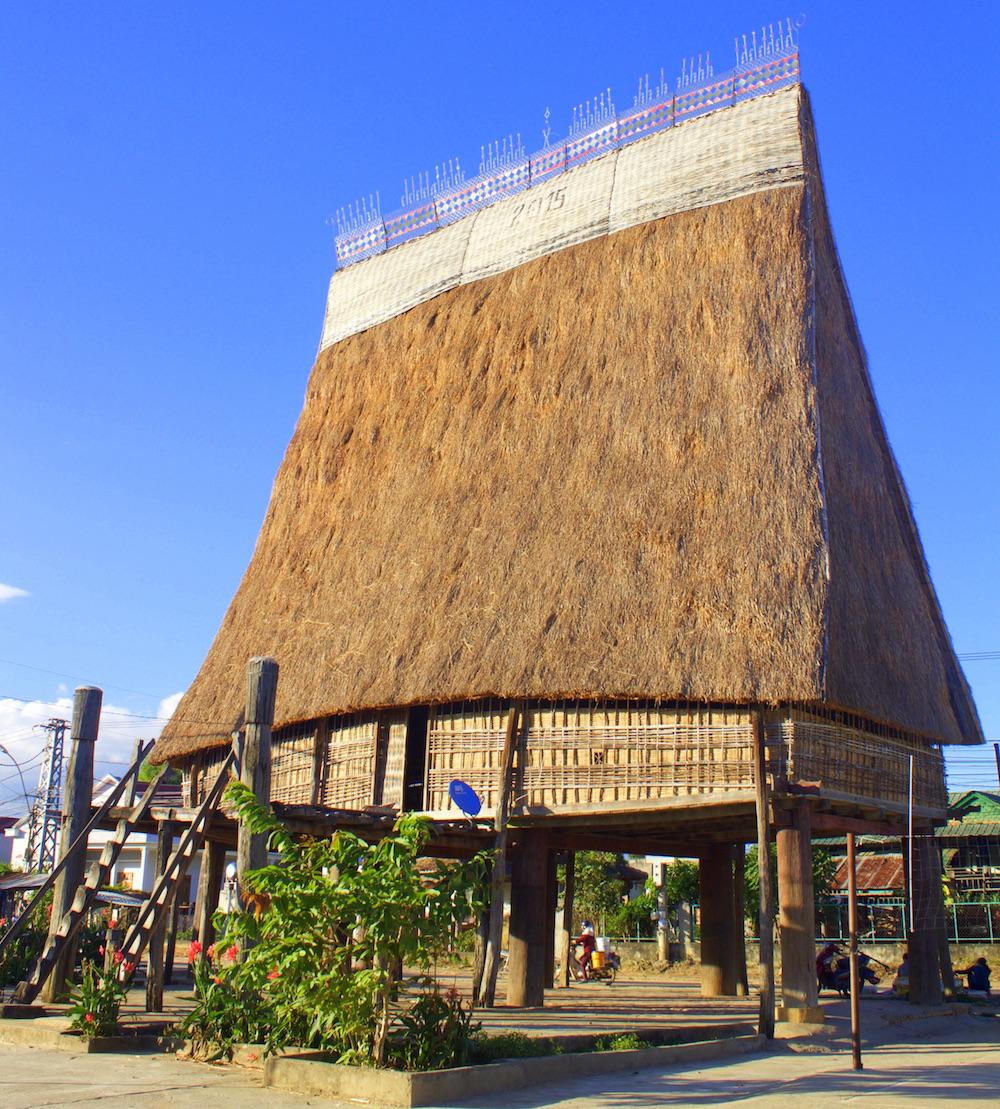
In Sigiriya, Sri Lanka, we stumbled across a guesthouse which, in addition to a selection of conventional rooms, also had a tree house on offer at a significantly lower nightly rate.
The owner had built it for travellers who wanted to try an alternative type of accommodation or who just weren’t able to afford the ordinary rooms.
We didn’t stay in the tree house in the end because we weren’t happy with the level of the security that it would have provided for our valuables... but had we not been travelling with expensive electronic devices we would have stayed there in a heartbeat and would have saved a lot of money.
.jpg)
To use another example, when we stayed in the village of Tuk Tuk on Samosir Island in Lake Toba, Sumatra, it was possible to sleep in the traditional houses of the indigenous Batak people, a group renowned for their tribal traditions, artistic abilities, musical talents, black magic and history of cannibalism, among other things.
While the Batak houses can be a little dark inside due to having very small windows and too few of them, they are unique and enjoyable places in which to spend the night.
There’s normally a comfortable mattress on the floor for a bed and a mosquito net draped over it. Most of the houses don’t come with WiFi but you can get around that problem by buying a local SIM card and using the cellular data instead.
Perhaps most importantly, these traditional Batak houses were very affordable compared to many of the other lodging options on the peninsula, as most travellers that visit the village tend to seek out the rooms with all mod cons.
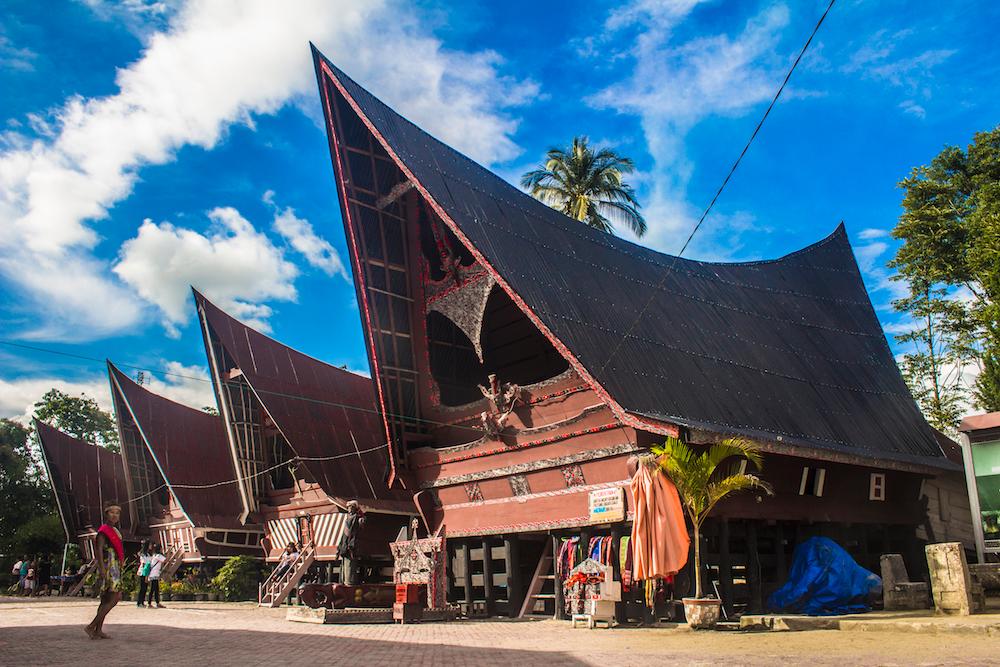
With all this said, it’s worth pointing out that these unconventional lodging options won’t always be cheaper than the local budget hotels and guesthouses.
In other words, quirky accommodation still has all the potential in the world to be hideously extravagant and highly overpriced. For example, ever heard of glamping?
If using Airbnb to save money on accommodation you’ll therefore need to already have an idea of the typical nightly rates for the budget sleeping options in the destination that you’re visiting and see if the website turns up anything cheaper.
If you haven't joined Airbnb yet, sign up now with this link to get $25 off your first booking.
#4 - Travel slower and rent for longer
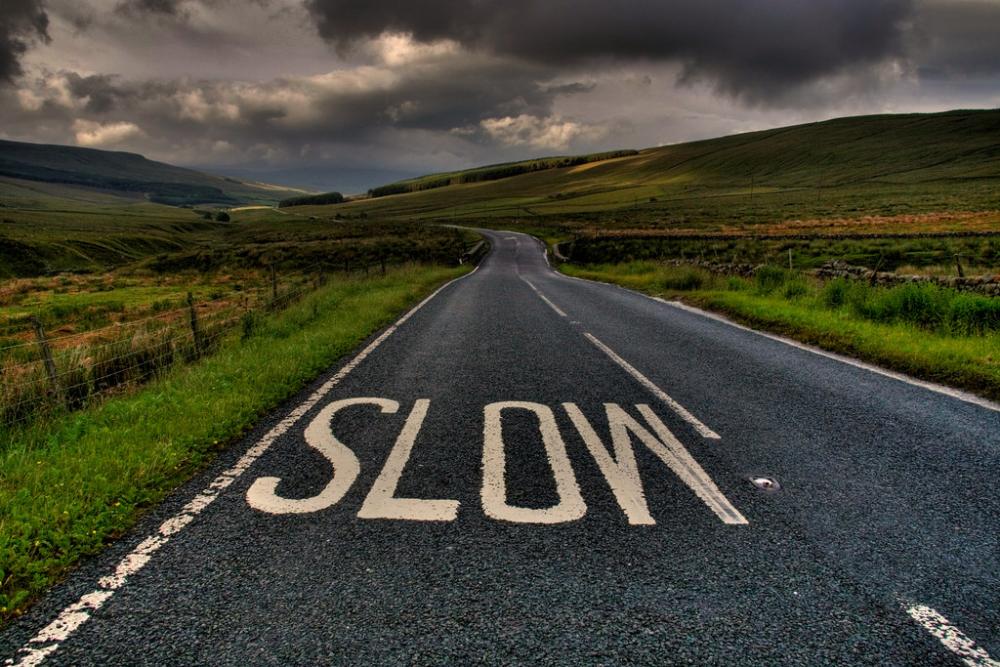
By travelling more slowly and staying longer in one destination, there are a plethora of benefits to be had, such as really getting to know a place, building stronger connections with the people there and most importantly for the purposes this article, saving money on accommodation.
If you’re willing to spend a few weeks or months in a destination, you can get access to the long-term accommodation market, which includes properties like apartments, flats, bedsits, entire homes and long-term rentals in properties that are normally geared more towards short-term stays.
There are some serious savings to be made if you can pay a bit more money upfront like a month’s or even half a month’s rent and especially if you can share the rented space with several other people.
For example, when we stayed high in the mountains of northern Vietnam in Sapa for three months during the winter, we rented a very spacious room with two king size double beds, ensuite bathroom, hot water, fast WiFi and a balcony for about $120 per month in an old lady’s home. That worked out at just $2 per head per night.
Even if you can stay just a little bit longer than what's typical there are discounts to be had. We've often been offered discounts for staying just three nights.
Unfortunately, a lot of travellers leave destinations prematurely and miss out on so much as a result. While it is sometimes necessary to cut ties due to time constraints, it’s just as often a personal choice that travellers make because they have the irresistible urge to see as many destinations as possible during their trip.
But visiting a plethora of destinations over the course of a short holiday is not necessarily more productive if you only experience a tiny fraction of what each has to offer.
Look beyond the obvious things to do and see and you'll start to see that many destinations offer a whole lot more beneath the surface. You'll begin to realize that there's no need to leave a place so soon once you start seeing these new possibilities.
Also, think less in terms of the quantity or total number of experiences you're having and more in terms of the quality of each one.
You might think it's better to blitz through ten attractions in one day but maybe it's more beneficial to visit just one, absorb everything you can and really get the most out of it.
#5 - Book in advance only if cheap accommodation is likely to be scarce when you arrive
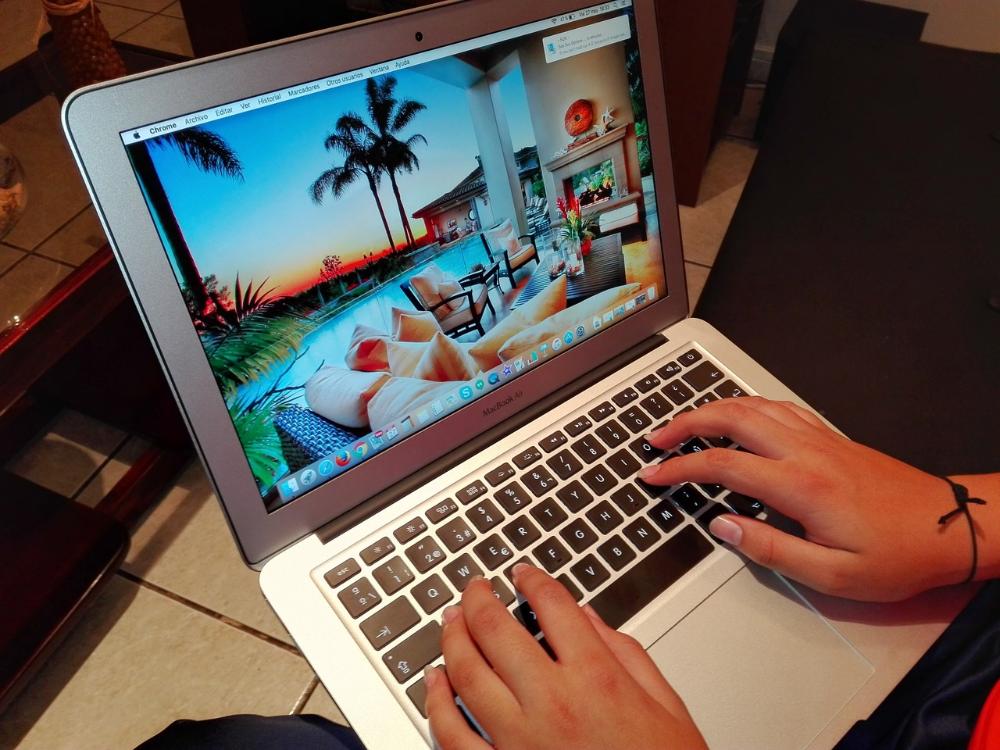
There are certainly advantages to booking accommodation at a new destination in advance of your arrival.
It can save you time, as it's guaranteed that the room you booked will be available for you to enter and occupy when you arrive. Once you get into town, you make a beeline to the property where you booked the room and you get instant gratification.
If you go to a hotel without a reservation on the other hand, you risk being turned away at reception because the type of room you're interested in isn't available. You might also reject the room yourself for myriad reasons. You can end up spending more than an hour checking multiple hotels before you find a room that you're happy with.
It's also safer to book accommodation in advance, as it means that even if you arrive at the property late at night, the owner will be expecting you and will be there to let you in, even if the establishment normally shuts down for the night much earlier.
It's no fun to have to spend the night on the streets because you arrived in town too late and all the hotels are locked up, with the occupants all fast asleep inside. It has happened to me at least twice in the last few years and it really sucks. This is why we recommend booking accommodation in advance as one of our top travel safety tips.
However, if safety be damned and the primary goal is to find the absolute best room deals in your destination and save money on accommodation, we don’t normally recommend booking in advance, whether that's over the telephone, through a travel agent or through a booking website.
There are five main reasons for this recommendation.
The very best deals in town are often not to be found until you arrive
Once you arrive at your destination and begin exploring the place on foot, you will often serendipitously stumble across unobtrusive homestays, budget hotels and guesthouses that aren’t listed on any of the booking websites and that rely entirely on the walk-in trade.
Moreover, these properties, which are often tucked away in the little nooks and crannies, often turn out to be the cheapest places of all to overnight in as they receive fewer guests due to not having a presence online and being located off the beaten path.
For example, in the town of Trat in Thailand, we found a very humble guesthouse just off a quiet street, down at the end of a long narrow alleyway.
You’d barely have noticed the tiny wooden sign for the place if you weren’t attuned to such subtleties. The guesthouse was in fact more of a homestay run by an old lady where she was renting out a few of the vacant rooms in her home.
After negotiating a little with her, she gave us one of her fan-cooled double rooms with free WiFi thrown in for just 120 baht per night ($3.60), which was an amazing deal that we would have never have been able to find online.
All the other guesthouses that we investigated in the same town that were listed on booking websites were charging 200 baht and upwards for the exact same (and often worse) standard of accommodation.
You will also sometimes find special offers advertised outside properties that are “walk-in” only or in other words, they aren't available online.
Booking in advance means that you don’t get a chance to investigate these unlisted properties and all the walk-in deals after you arrive, meaning that you potentially lose out on some of the best deals.
You can’t be as spontaneous in your travel plans
Booking accommodation in advance may lock you into visiting a specific destination during specific dates, meaning that you have less freedom and flexibility than a traveller who hasn’t made any reservations.
If your plans change last minute, you won’t always be able to cancel the booking without incurring a financial loss, although it is possible to book a room in some properties without providing any card details.
All hotel booking websites are middlemen companies that must somehow make a commission and it is always you the customer who pays that commission.
With some booking websites, the commission you pay takes the form of a service fee, a cleaning fee, a non-refundable deposit, a reservation guarantee and other similar fees.
If the booking website takes all their commission exclusively from the host and not from you the customer, the host will simply raise the price of the room in the listing to compensate for the commission. Therefore you ultimately pay the commission one way or another.
Walk-in rates on the other hand can often be significantly lower than the rates that are advertised online because you are not paying anybody’s commission on top of the room rate.
Many travellers have reported viewing a room listed at a certain rate on a third-party booking website such as Agoda and then turning up at the same property a few hours later to find that the walk-in rate for the same room was much lower.
Booking in advance makes it far more difficult negotiate a discount
When you book in advance online, you essentially agree to pay the listed price, even if the payment is not to be made until you check-in.
That means that if there happens to be a low occupancy rate in the hotel or guesthouse when you finally arrive at reception, you’ll probably still have to pay the price that was listed online for the room.
You could threaten to cancel the booking in a last ditch effort to get a discount, but if you’ve already registered your card details with the booking website you might be charged the full sum of the booking, with this normally depending on the hotel’s cancellation policy.
On the other hand, if you were to just walk into the lobby without any reservation and speak with the receptionist, there would at least be a chance that you’d be able to negotiate a lower rate in that scenario.
But what about making a reservation over the phone? While reserving over the phone does give you a chance to strike a deal, it’s still easier to negotiate a discount in person where you can employ persuasive body language and communicate more effectively.
Rooms and facilities can be easily misrepresented online so that you end up not getting the value you thought you were getting.
By deliberately showing only the aesthetically pleasing parts of the room or the property and omitting the ugly scenes (like the en suite bathroom that hasn’t been cleaned in a year), businesses can often paint a very misleading picture of the place. Photos can also be manipulated with editing software like Photoshop to create a false impression.
Establishments may also lie outright about possessing certain facilities and amenities that they don’t have. For example, guests have turned up at hotels in the past expecting their room to have a balcony, only to discover that it didn’t have one.
We once checked into a low-cost guesthouse in Arugam Bay, Sri Lanka and not longer after we had settled into the place, a European girl showed up with a booking that she had made online.
The girl immediately expressed great surprise and disappointment when she realized that the property did not live up to her expectations that were based on the details of the property listing she had been looking at online.
Customer reviews that are found on websites like Tripadvisor can also be unreliable. A whole industry has now evolved around "reputation management" companies that many hotels will hire to leave them very believable but fake positive reviews.
Conversely, hotel enemies or competitors will sometimes deliberately leave misleading negative reviews of the property, deterring you from staying at a place that could very well have been exactly what you were looking for.
Many hotels even bribe their guests with room discounts, free meals and other incentives to leave shining reviews on websites like Tripadvisor.
The one exception to the rule
Now that we’ve discussed why we don’t usually recommend that bargain hunters book online, we will say that there is one instance where we do recommend booking online in advance, even for those on a tight budget.
If you’re visiting a popular destination during thepeak season you could potentially save a lot of money by booking your stay online well in advance of when things start to get busy.
Turning up without a booking in the peak season is often a recipe for disaster with exorbitantly high room rates everywhere you look (the cheap rooms tend to get snapped up first, only leaving vacancies in the most expensive properties) and the very real possibility of not being able to find a room at all.
Tips for saving money when booking in advance
For those peak periods when it is wise to make a reservation before you arrive, you will most certainly want to know how to go about it in the right way so that you can always find the best deals.
We've prepared some very useful tips to help you to do just that.
Just bear in mind however that a few of the following tips are more geared towards saving money when booking mid-range or more top-end accommodation and may not be completely relevant if you're only looking for the cheapest possible lodgings.
#6 - Choose the right tool (booking website) for the job
Not all booking websites are created equal. Some are good at finding upscale hotels in city centres, some are region-specific, some specialize in finding hostels, some excel in the sheer volume of sleeping options that they turn up in a given destination and so on.
Depending on where exactly you’re travelling to or what type of lodging you’re looking for, it’s important to use the booking website(s) that will be the most likely to turn up the best deal for your particular circumstances.
But when it’s budget accommodation that you’re searching for, we’ve found that Booking.com, Agoda, Airbnb and Hostelz.com are, in the general, the most important platforms to focus your efforts on.
We consider OTAs like Expedia, Orbitz, Travelocity, Hotwire, Kayak, Hotels.com and Priceline to generally be second-rate options when it comes to finding low-cost accommodation, although they have their uses too.
Booking.com
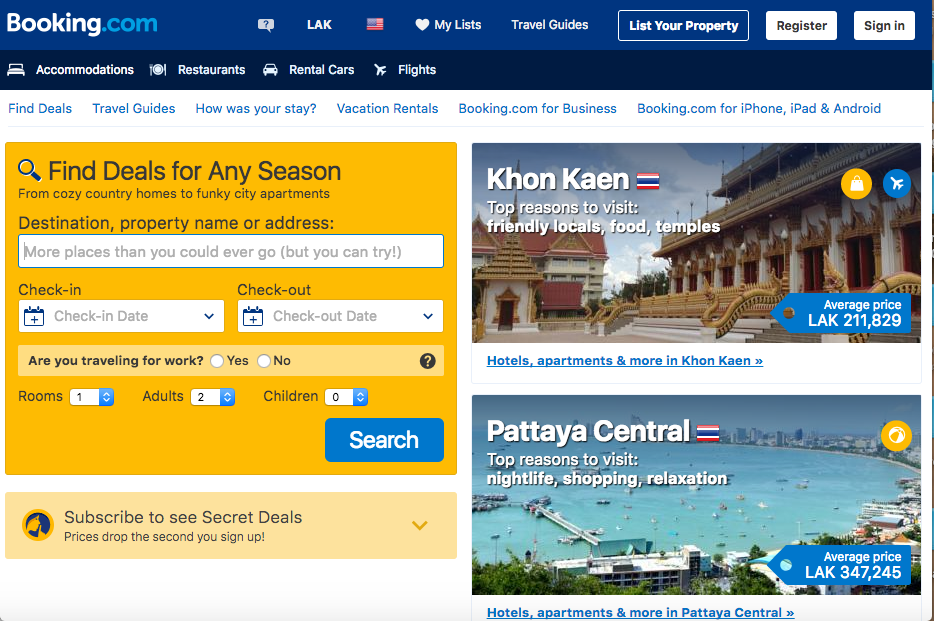
Booking.com is considered by many to be the no.1 overall booking site on the web. It is the largest accommodation booking platform in the world and will often find twice the number of properties as other OTAs.
Some of the lead rates (the first rates you see in the search results) displayed for listings on booking.com might initially appear to be higher than those displayed on competitor websites but this is simply because Booking.com is being more honest by including the taxes and extra fees, which many other platforms only reveal when the user clicks through to book.
In fact, once you do the math and account for these hidden charges, the rates on Booking.com will turn out to be lower than on competitor websites in a high percentage of cases.
Agoda
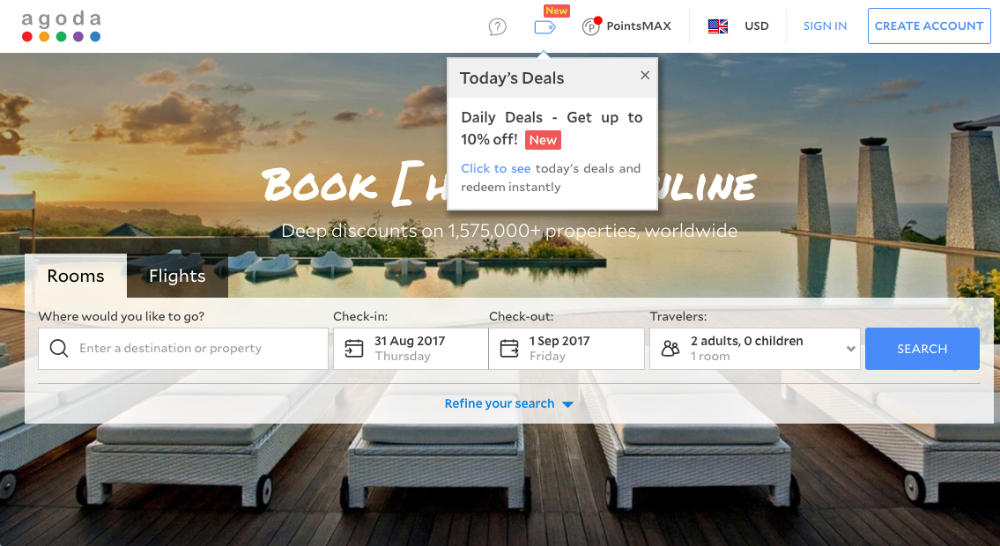
A few years ago, Thailand-based Agoda was a specialist when it came to booking accommodation in Asia, but the platform has since expanded its coverage to many other parts of the world. These days whether you’re travelling in Asia or not, Agoda is definitely a booking platform to have on your radar.
Agoda will often find more listings in city centres than booking.com although the latter normally takes the cake when it comes to displaying a greater variety of cheaper downtown listings.
Many experts consider Agoda to be a close contender with Booking.com for the title of best accommodation booking website.
Airbnb
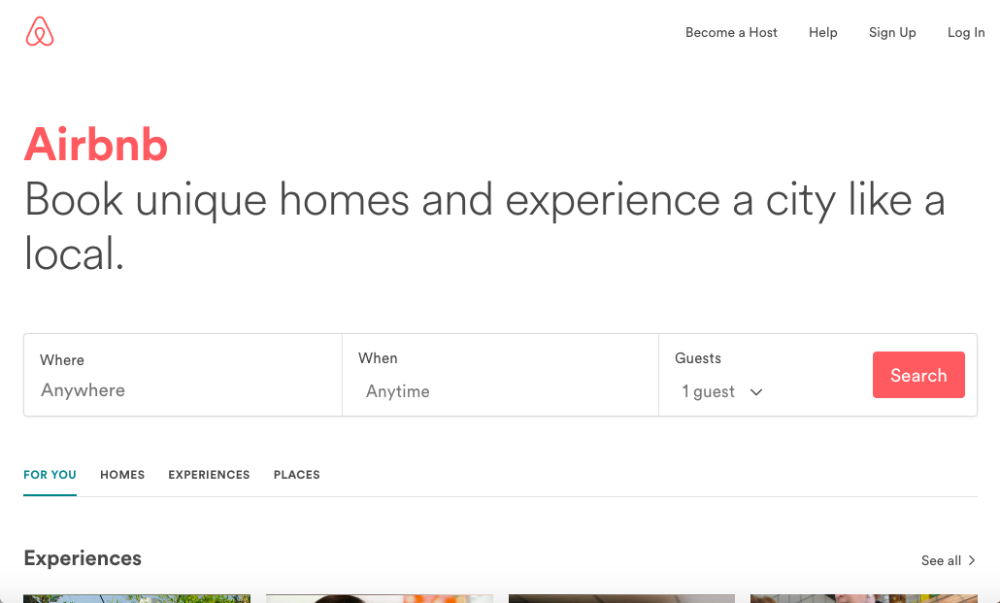
These days a lot of budget travellers are choosing to book a room, apartment or vacation rental with Airbnb instead of a room in a conventional hotel or guesthouse.
In addition to the fact that the rates of Airbnb rooms will often significantly undercut those of hotel rooms of comparable quality, travellers are also lured to the platform by the promise of a more authentic experience by sojourning in a real home in a local neighbourhood as opposed to bang smack in the middle of a tourist area.
Airbnb also offers many unconventional and eccentric lodging options that can feel like a new adventure in their own right for travellers who are jaded with the experience of staying in boring cookie-cutter hotels.
Through the Airbnb platform you can potentially wind up staying in farmhouses, hunting lodges, medieval castles, French chateaux, Alpine chalets, tree-houses, hobbit homes, bamboo huts, log cabins, lighthouses, gypsy wagons, sheep wagons, horse boxes, converted tour buses, converted shipping containers, caves, Mongolian yurts, tents, Dutch windmills, self-sustaining eco-homes, sailing boats and many more unique properties!
Hostelz.com
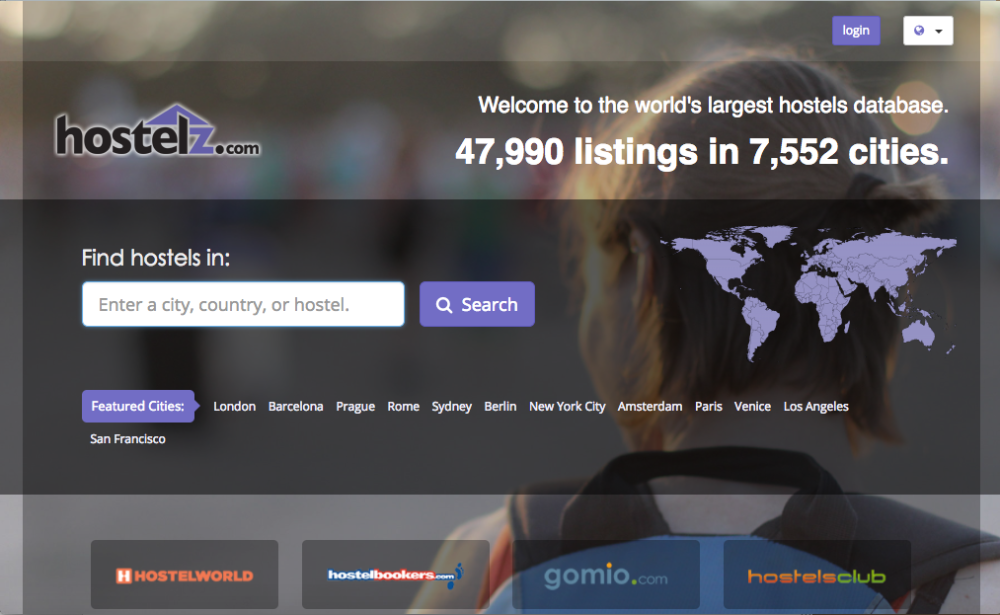
Aggregator websites or meta-search engines are also not to be overlooked when it comes to booking cheap accommodation.
Hostelz.com is one such meta-search engine that specializes in finding low-cost lodgings by canvassing the likes of hostelworld, hostelbookers, hostelsclub, Booking.com and gomio. It claims to be the world’s largest hostel database with almost 50,000 listings in more than 7,500 cities worldwide.
Because it exclusively focuses on budget sleeping options like hostels, homestays, guesthouses, campgrounds and oddball properties, it won’t turn up as many results as some other booking websites, but it’ll often yield the really low-cost options that other booking websites fail to find.
#7 - Try booking at the last minute

Hotels don’t like it when guests cancel a booking within the cancellation period (usually within 24-72 hours before the check-in date) because they may really struggle to resell the room when that happens.
But if you book within this cancellation period and especially at the last minute, you can often snag a discount by booking one of those recently cancelled bookings that the hotel is eager to resell. Either that or you may snag a discounted room that the hotel just hasn't been able to sell in the first place.
It's generally best not to wholly rely on finding last minute deals but rather to use them in conjunction with the more conventional strategy of booking a room well in advance.
The best thing to do is to hold the first room you've booked for as long as possible and then cancel it if you find a great last minute deal. To make sure you don't get charged on the original booking for a last-minute cancellation, avoid booking properties that ask for card details. We show you how to do with Booking.com that in tip #11.
#8 - Use apps to help you find discounts on same-day bookings
Sometimes you might just get lucky and find discounts by booking rooms on the same-day as your arrival or at the last minute, but if you want to take luck out of the equation, there are now apps that can help you find these special discounts.
These days many hotels are partnered with various apps, authorizing them to offer their rooms at discounted prices (20-60% off) to guests booking on the same day. You now get rewarded for leaving it until the very last minute to book!
Here are some of the most useful apps for finding last-minute discounts on rooms. All the following apps are available for both iPhone and Android.
Hoteltonight
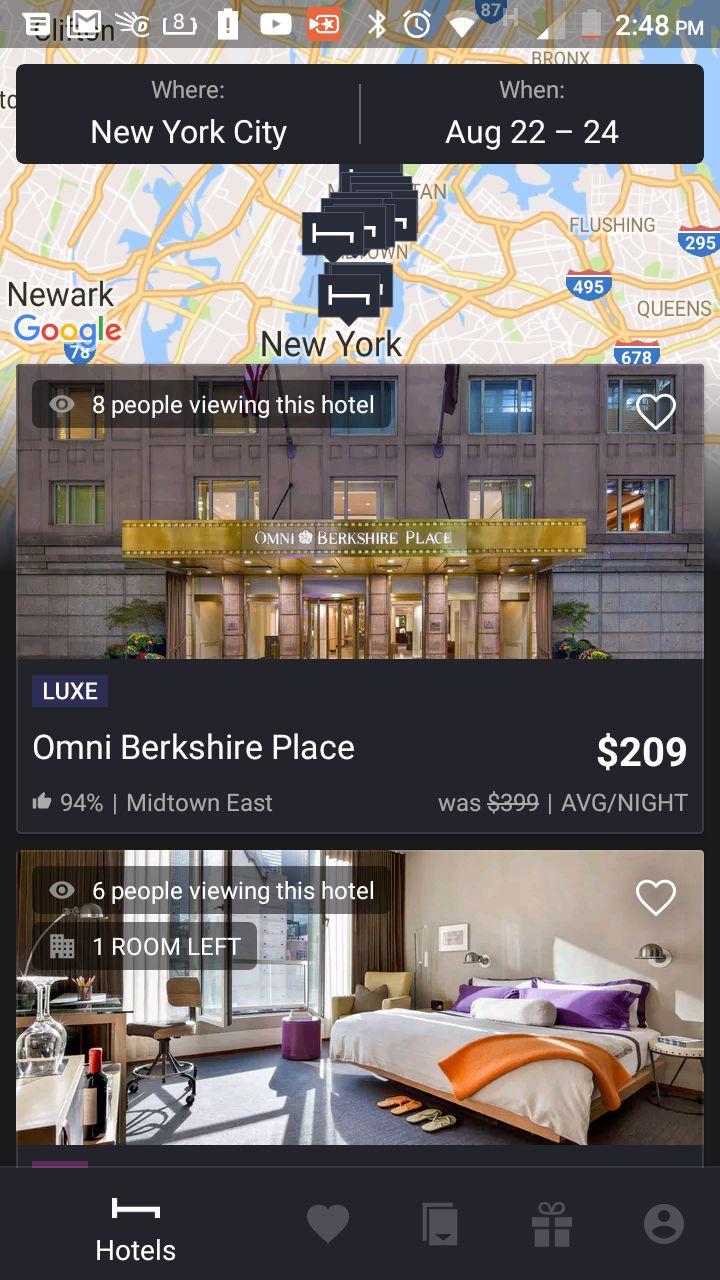
Hoteltonight was one of the first last-minute hotel services on the market so they’ve been around long enough to create a smoothly operating service. Their methodology is that they would only recommend hotels that they’d stay in themselves, so the standards are generally kept quite high.
With roughly 15,000 properties in 35 countries spanning Europe, Australia and the Americas, their inventory isn’t quite as large as some similar apps, but this could be a good thing as it probably means that they’re being more selective about which properties to display.
When Hoteltonight launched in 2011, it was strictly all about same-day bookings, but the app now allows for booking up to one week in advance. The best deals are still of course to be found for those booking last minute.
Hotelquickly
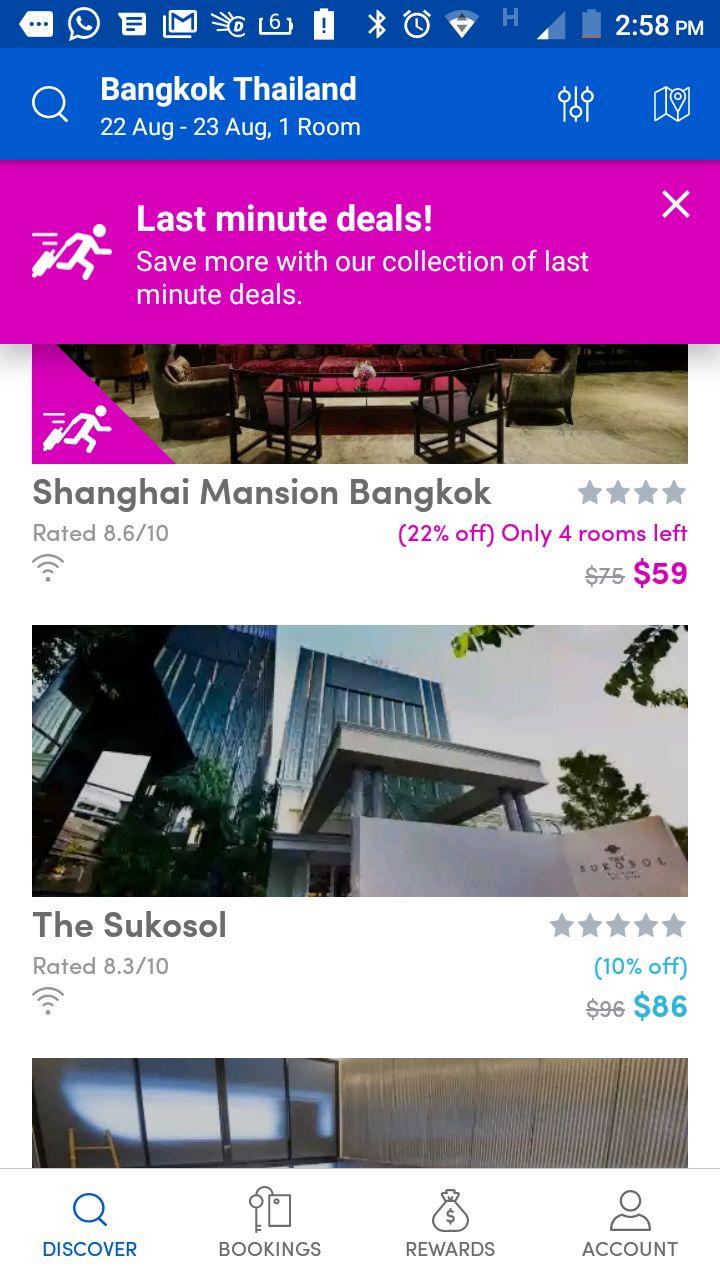
Hotelquickly, as the name suggests, is all about allowing you to book discounted rooms at a moment’s notice. Officially you can book a room until as late as 4 a.m on the same day.
You can also book rooms up to a year in advance, although this is not the way to go about it if you want to save money.
Hotelquickly have special contracts with hotels that allow them to sell same-day bookings to app users at average discounts of 20% when compared to the prices you would find elsewhere on the Internet.
They currently list about 20,000 hotels in cities across the Asia-Pacific region, which are all hand-selected after being vetted by country mangers to ensure high standards.
Onenight
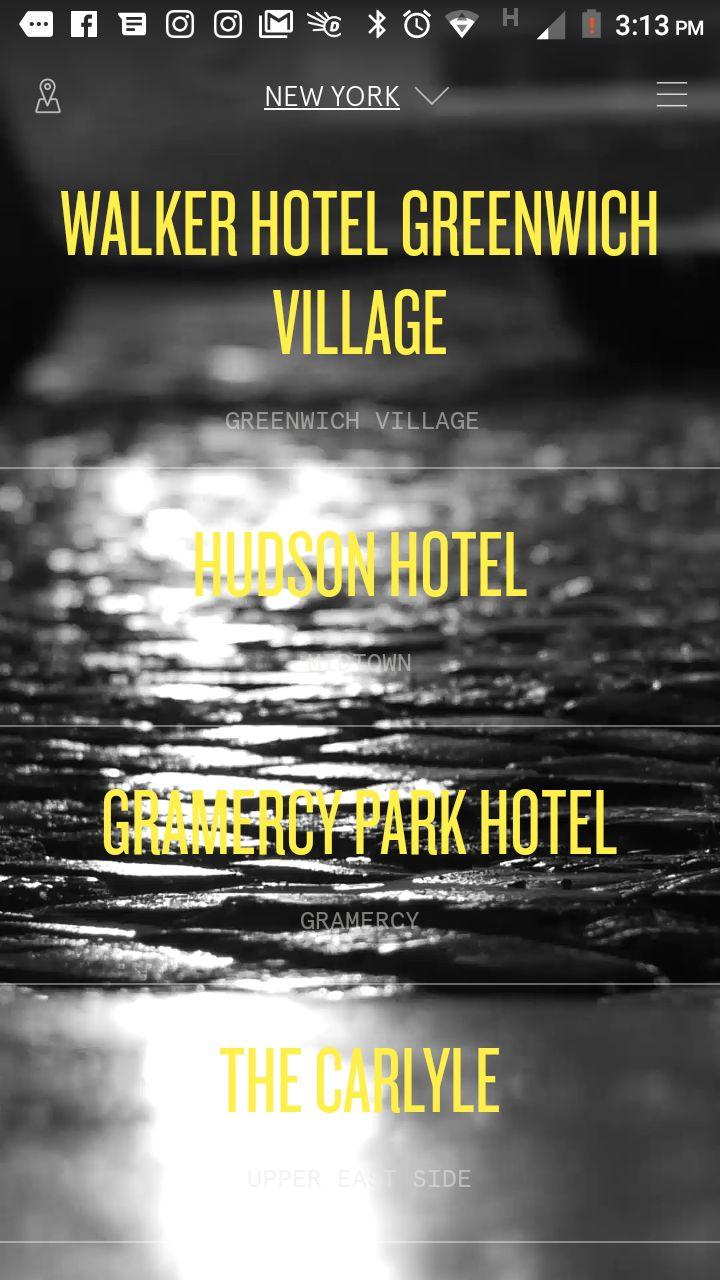
According to Onenight, the night begins at 3 p.m, a slogan that reflects the company's commitment to serving you up unbeatable rates for same-day spontaneous bookings.
Like the aforementioned apps, they only list their favourite hotels, but with a particular emphasis on luxury hotels that provide the best lifestyle experiences. Their curation is somewhat stricter than other apps in the field, which could be quite limiting for some people when it comes to choice.
One night is currently only available in certain cities in the US including New York, Boston, Chicago, L.A, Miami, San Francisco, The Hamptons, Washington D.C and Austin, but the company has plans to expand their coverage to other cities in the coming months.
#9 - Buy other travellers unwanted rooms
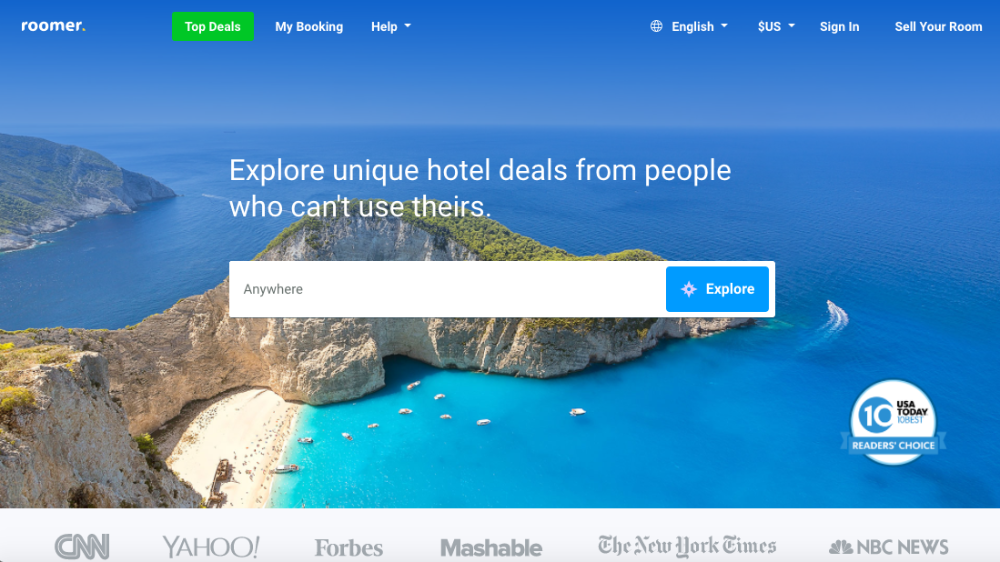
There’s now an online market for unwanted rooms that have been cancelled at the last moment by travellers that couldn’t fulfill their booking for whatever reason.
Essentially how it works is that travellers who are forced (for whatever reason) to cancel a non-refundable reservation can recoup some of their losses by selling their booking on to you via platforms like Roomer and Cancelon.
By taking advantage of one of these platforms you could save serious money as many of the rooms are advertised at rates like “86% off”.
#10 - Try booking over the phone
.jpg)
Your best chance of negotiating a discount or a room upgrade when booking a room in advance is by making a direct phone call to the property.
People are more prone to the human touch over the phone as opposed to say when reading an e-mail, especially if you mention that it’s a special occasion like a birthday or that it’s a special treat for your partner.
If you're travelling with a family you can also mention the fact and ask if there are any family discounts, upgrades or free meals for children.
#11 - Book rooms that allow for free cancellation
If you've provided your card details during the booking process, the rooms that allow for free cancellation up until as close as possible to the time of your check-in are the best ones to book (up to 24 hrs before is better than 72 hrs).
Why? Because doing this will increase the chances that you’ll still be able to cancel for free if you happen to spot an even better deal as your check-in date draws ever nearer.
On Booking.com you can even choose a filter in the sidebar that will only display listings that allow for card-free bookings so that there’s no possibility that you’ll be charged, even in the event of a last-minute cancellation.
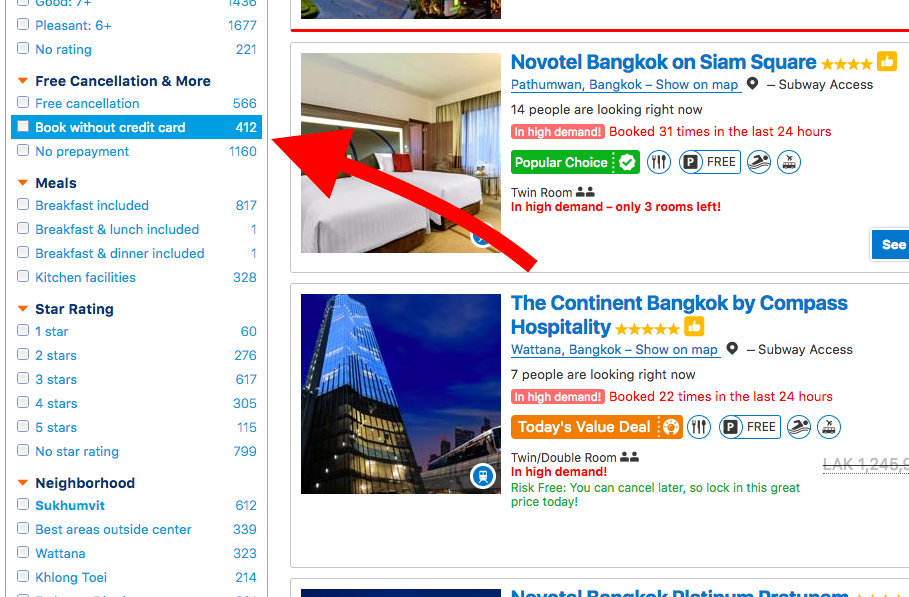
You can also find similar filters on other booking platforms which will help you to find these rooms that can be booked without providing payment details.
#12 - Sign up for alerts on booking websites
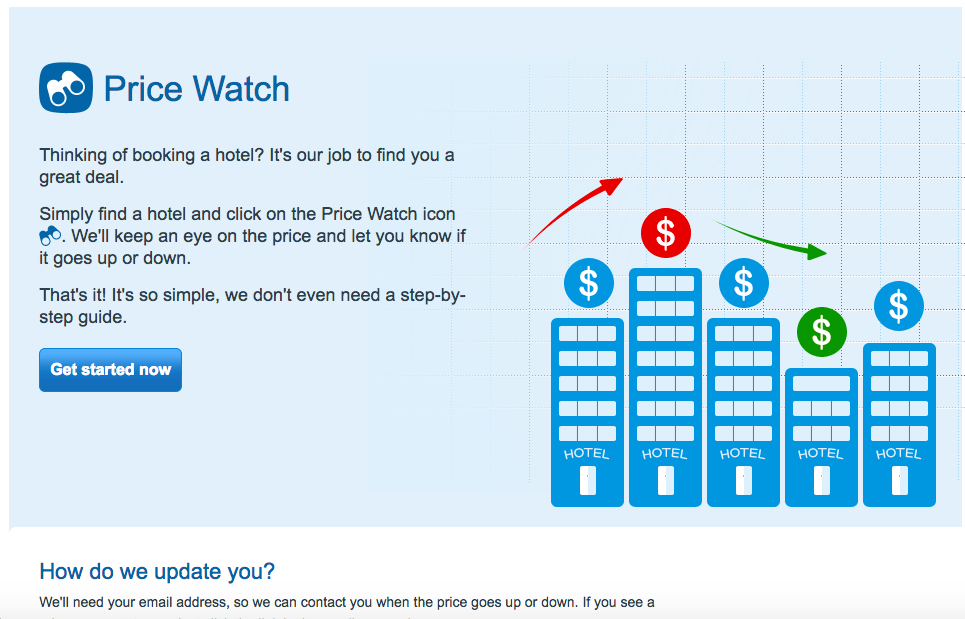
Many booking websites now allow you to monitor fluctuating hotel prices so that you can book just after the price plummets. This can be an especially useful service if you're looking into the matter of accommodation well in advance and you're in no hurry to book right away.
Hotels.com have price watch, which allows you to monitor the price of a up to 10 hotels by clicking on the price watch icon (binoculars icon) and entering your email address.
If the price changes at any time, whether that's an increase or a decrease, you’ll be notified by email.
You can also sign up for price alerts on Kayak.
Waiting too long of course could mean that you lose the room you had your eye on to somebody else.
# 13 - Consider hotel + flight bundle deals
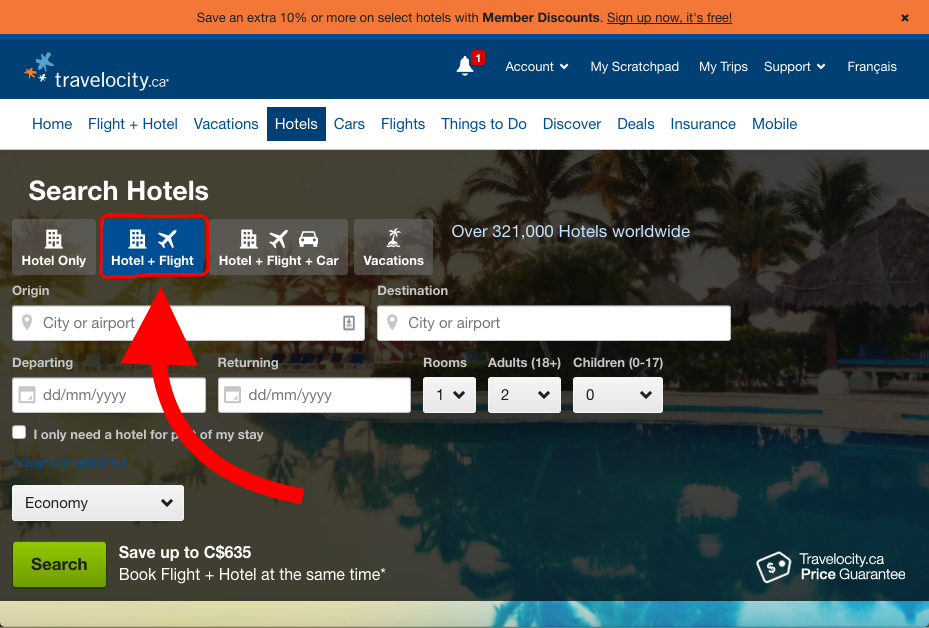
When you book your flight and accommodation together as a bundle, savings are often to be made, although at the cost of less flexibility in making individual choices. Websites that allow you to book flight + hotel packages include Kayak, Expedia, Travelocity and Orbitz.
#14 - Compare prices with those on the property's own website (if it has one)

Although they’re often not supposed to do so owing due to rate parity clauses, hotels will sometimes price rooms cheaper on their own websites than they price them on OTAs such as Agoda or Booking.com.
Hotels can afford to give you the room cheaper in this instance because they don't have to pay a 20-30% commission to the OTA when you book direct with them.
Of course, when the room price is already very low, say less than $10 per night, a 20-30% commission on top of the true room rate won’t cost you a whole lot extra, but every dollar still counts in the long run.
When the room in question is an expensive one, the savings made by booking directly through the hotel website can be huge. We’re talking more than $75 in some cases.
Another reason for booking directly through the property’s own website is that the options presented on third-party booking websites can often be different to those presented on the hotel’s own website.
For example, you might be forced to choose a more expensive room configuration for a family when booking through the OTA, such as having to pay for two separate rooms instead of a family room, which could end up costing you more money.
While booking directly through the property’s website can often be cheaper than booking through an OTA, it certainly isn’t always the case, much in the same way that it isn’t always cheaper to book flights directly through the airline website.
It’s always important to check the prices on both platforms before you make a decision.
#15 - Sign up for a hotel or booking website loyalty program

Some hotel chains such as Marriot, Starwood, Hyatt, Hilton and others have a hotel loyalty or hotel reward program, which you can sign up for. If you are already loyal to one particular chain, then you have nothing to lose by signing yourself up.
Hotel loyalty programs generally work by rewarding you with points for each night that you stay at the hotel and the points can later be redeemed for free nights once you have accrued enough of them.
The schemes also typically have multiple levels and once you reach the higher levels you get access to additional privileges and hotel amenities like rolling 24-hour check-in (you have 24 hours until you check-out, regardless of when you check-in), free room upgrades, bonus points, buffet breakfasts, executive lounges, spas and so on.
But it’s not just hotels that offer these loyalty programs. Some booking websites have them too.
For example, if you join the hotels.com rewards program, you only have to book 10 nights to get one night completely free. The ten nights can be booked in different properties and can be part of a single trip or multiple trips. The value of your free night is equal to the average price of the ten nights that you collect.
Agoda have the PointsMAX program where they’ve partnered with more than 40 airline loyalty programs and each time you book accommodation on Agoda, you can earn points toward your selected airline program.
#16 - Refer friends to hotels and booking websites to get discounts and bonus points

Many hotels will reward you handsomely these days for referring friends to their business, usually in the form of bonus points or discounts on your next booking.
For example, the Marriott will grant you up to 50,000 points by referring 5 new friends each calendar year. You earn 2,000 points for each of the first 5 nights stayed by each friend so you can earn 10,000 points per friend. Your friends can also receive up to 10,000 bonus points (2,000 points for each of their first 5 nights).
You can also earn up to €150 by referring friends to Booking.com. For each friend you refer you both get €15 back on your credit cards and the website allows you to refer up to ten friends.
Sign up to Booking.com through this link to get €15 off your first booking.
Hoteltonight also have a generous referral program where they’ll grant you $25 in travel credits for each friend that books. Unlike some other referral programs, Hoteltonight uses referral codes instead of links.
Use our referral code EOGDALY to get $25 off your first booking with Hoteltonight when you sign up.
Once you’ve downloaded the app, you can start referring friends by tapping the account icon in the top left corner and then tapping “invite friends, get $25” under “Your Promotions”. Instructions and your invite code will then be displayed.
Airbnb has a great referral program too where you receive $20 for each friend you refer that books an Airbnb room worth $75 or more.
You also receive $75 when a friend that you’ve referred hosts their first guest so that's a potential $100 earned for each referral.
Once you’re signed into the Airbnb website, you can find your referral link on this page. You can also send out invites to various email addresses from this same page if you wish.
If you haven’t joined Airbnb yet, sign up now with this link to get $25 off your first booking.
#17 - Use coupon sites to find deals and discounts

One great way to save money when booking accommodation is to visit coupon sites like Groupon and Dealsplus, where you can various discounted coupons, promo codes and other special offers issued by various OTAs or directly by the hotels.
Of course, most of these offers come with terms and conditions and will often require you to spend a certain minimum amount in the first place in order to avail of the offer, but they can still definitely save you money in many cases.
#18 - Membership programs

Members of various programs like the AAA (American Automobile Association), AARP (American Association of Retired Persons), ADP and the ABA (American Bar Association) can often access special discounts on hotels, airfares, rental cars, restaurants and other travel expenses.
If you join the eMembership program of Hostelling International, you can save 10% on HI hostels worldwide.
If you're a student, getting an International Student Identity Card (ISIC)) will allow you to prove your student status and give you access to over 150,000 discounts and offers worldwide, including many discounts on lodging.
If you’re booking with hotel chains such as Hyatt, Wyndham, Choice, Starwood, Hilton, Best Western and La Quinta, you may be entitled to discounts of up to 20% off if you’re a member of any of these programs.
Of course these membership programs mostly come with annual fees, although if you’re a frequent traveller, the discounts you’ll receive from being member should more than negate those costs.
#19 - Book a secret hotel or bid for a room
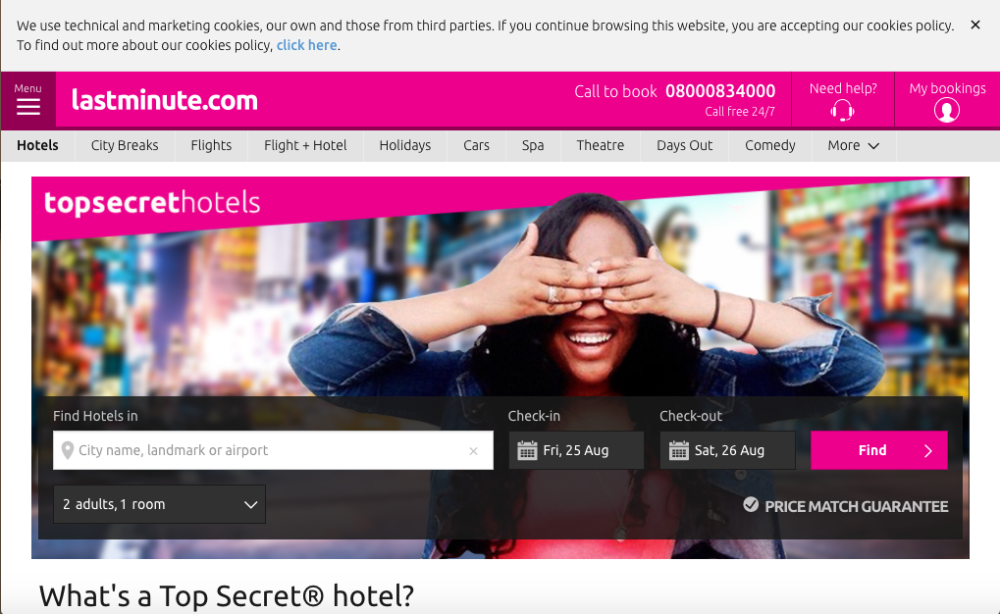
Secret hotels are just hotels that want to protect their identity and location when offering deeply discounted unsold rooms on various online platforms. The room deals offered by these hotels are often known as "mystery deals".
When booking a stay in a secret hotel, the identity and address of the hotel remains a mystery until you actually make the booking, although you will usually be able to see the price and amenities that are provided beforehand.
The identity is presumably kept hidden to protect the hotel's reputation and to avoid upsetting other guests who paid more for an equivalent room.
You can find some incredible discounts by booking secret hotels - discounts that other hotels simply won’t be able to match, even ones with a best-price guarantee.
Lastminute.com has a top-secret hotel page for finding some of these secret hotels in the UK and Europe, where they claim you can get discounts of up to 40%.
Hotwire's version of this are their Hot Rate Hotels (up to 60% off), while Priceline's Express Deals (up to 60% off) and Travelocity Top Secret Hotels are mostly US focused.
Note that there are a few tools on the web, such as FindOptimal, which can help reveal the identity of a secret hotel before you book if you're sold on the price but you're still a bit iffy about the place.
Another thing you can try on some platforms is price bidding, which can also be done on Priceline.
This is essentially an online auction where you input the price you'd be willing to pay for a hotel room and the website claims that discounts of up to 60% are possible. Bear in mind that once you bid, you're committed to that price.
For some guidance on this, here's a useful article on how to beat hotel bidding sites in nine steps.
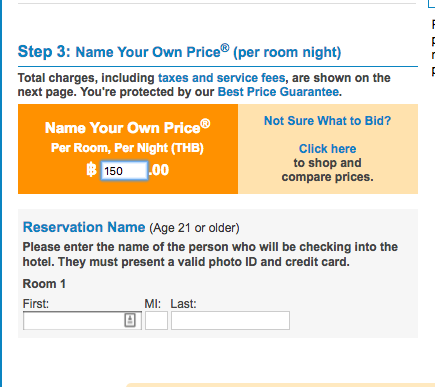
#20 - Follow booking websites on social media
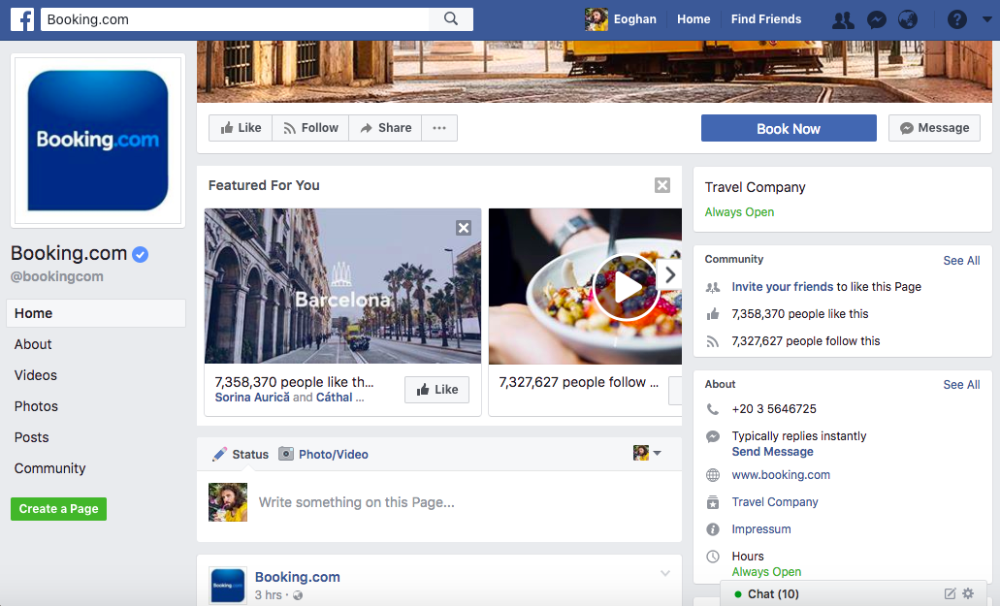
If you go and “like” your favourite booking websites on Facebook and Twitter, the pages should be added to your news feed and you will be able to follow them.
These days it’s becoming increasingly common for booking sites to advertise their discounted rooms and special offers through their social media outlets.
#21 - Subscribe to e-newsletters for special deals
In addition to following on social media you should also make sure that you're subscribed to the e-newsletters of the same booking websites for the possibility of getting access to exclusive offers that are only distributed to e-mail subscribers.
With many booking websites these days you'll be automatically opted into their newsletter whenever you provide your email by registering a user account, booking a room or signing up for price alerts.
In addition to regular newsletters you'll also be sent offers from time to time, which often correspond to what they think you'd be interested in, based on your recent activity on the website (yes, they're watching you).
When you’re booking a room through a website you should always make sure you’re signed in as discounted rooms will often only appear when this is the case. For example, booking.com encourage you to sign in to see rooms that are 50% off.
#22 - Sign in before you book
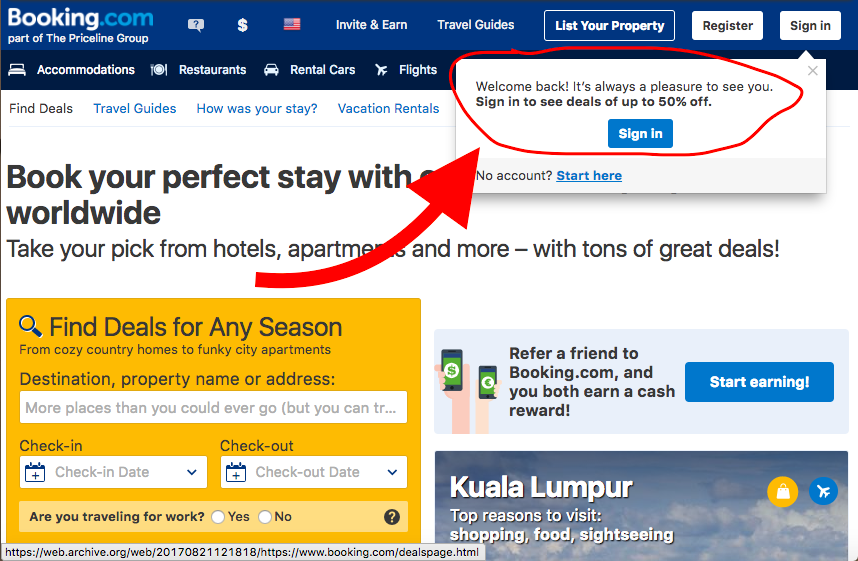
You might have a user account with several of the major accommodation booking search engines but do you always remember to sign before you book?
Believe it or not, by simply signing into your account whenever you're booking a room, many booking sites will give you access to special offers and discounted rooms that those not registered or not signed in don't get access to.
#23 - Take advantage of "best rate guarantees"

Many of the most popular booking websites and hotel chains have a "best price guarantee" or "best rate guarantee" policy.
This basically means that if you book a room on their platform and afterwards find a better deal for the exact same hotel, room type and length of stay on a competitor website, the booking site will match the lower price or compensate you in some way for the difference if you've already paid for the room.
At face value, best price guarantees sound great but in practice you do have bear in mind the minefield of small print that's attached to them.
The guarantee only usually applies to rates that are available to the general public and not rates obtained through membership programs, loyalty programs, group discounts, corporate discounts and so on. Other conditions of the booking on the competitor website like cancellation policies and advance purchase requirements may also need to be identical.
Also, once you make a claim (i.e by sending in a few screenshots), the lower price you've found on the competitor website will have to be confirmed by a representative of the booking site - but delays in addressing your claim can mean that the price will have increased in the meantime and may no longer be lower.
Even if you think you've done everything right, companies can be notoriously finicky when it comes to honouring the best-rate guarantee and will often look for any excuse to deny your claim so make sure to read all the fine print before you think you have a valid claim.
#24 - Airlines miles are not just for booking flights
If you've accrued airline miles by flying, shopping, eating out or whatever, you may not necessarily have to redeem those miles for a free flight with an airline.
Although the options are relatively few and far between, some airline miles programs do allow you to convert those airline miles into hotel points for a free night's stay.
The one major downside with doing this is that hotel points are usually worth less than airlines miles so you won't always be getting the best value out of your points by redeeming them for a hotel room.
For some further insights into this topic have a read of this article.
#25 - Use credit card points to book free hotel nights
Some credit cards will allow you to book free hotel nights using your reward points and even get a number of extra perks.
Not all points are created equal however. The amount of points earned per dollar spent and the value of each point varies from card to card, usually from less than 1 cent to over 2 cents. Some cards only make sense if you’re staying frequently in hotels, especially if there’s a high annual fee.
Here’s a useful articlefrom Lendedu.com on the best hotel credit cards for 2018.
The editors over at Wallethub also prepared a shortlist of the best hotel credit cards for 2017 by comparing more than 1,000 credit cards.
Finding the best room deals when you arrive without a reservation
As we mentioned before, we only recommend booking in advance when your arrival coincides with the peak season.
But at all other times we have found that the secret to finding the best possible deal in town is to carry out a thorough investigation of all or at least the majority of the budget sleeping options at your destination.
You have to keep digging until you finally strike gold. It’s important to leave no stone unturned in your quest to find “the one”.
The other factor that will determine your level of success will be your ability to haggle with property owners and receptionists to shave a few more dollars off an already great price.
Being an influencer definitely can also definitely help but as we shall see there are a few other strategies that you can implement to whittle down the quoted price to something more agreeable.
Of course, finding the best deals is often easier said than done once you arrive. They can be elusive and hard to pinpoint among all the other irrelevant noise.
Some destinations can be really big places with an awful lot of properties to sift through and it might sometimes feel like trying to find a needle in a haystack.
And you don’t want to be that traveller who’s still wandering around the streets looking for that elusive low price, hours after everybody else has already settled into a place that they’re happy with.
So here are some tips that can help you to become a better detective and sniff out those hot deals as quickly and as efficiently as possible once you arrive at your destination.
#26 - Have a shortlist of properties prepared for when you arrive
.png)
Having a shortlist of maybe 5-10 hostels, guesthouses and other low-cost properties (and their whereabouts) in mind when you arrive at your destination will mean that you have a lot less information gathering to do once you arrive.
It's a good idea to arrange this list according to which properties sound the most promising. The properties at the top of the list should be your priority and you should call into those first when you arrive. If your top choices don't work out you can gradually work your way down the list.
Even in destinations where most of the budget accommodation options are concentrated into a compact area and where you can rock up without a plan, it's still a time saver to rule out all the no-go (expensive) properties and have a few qualified leads prepared beforehand.
There’s often a good chance that you won’t have to look any further than the properties on your shortlist to find a deal that makes you very happy. Even if none of these satisfy, you'll at least know the best properties to fall back on if you can't find anything better.
So how do you find out what are the low-cost accommodation options in your destination and whether they’re going to have all the amenities that you require?
Here are a few resources that can help:
Booking apps & websites
Booking apps and websites certainly aren’t just useful for booking accommodation.
You can also use them as a research tool to make a shortlist of the properties that are offering the best deals at your destination and then visit those properties once you arrive to investigate the conditions and find out the walk-in rates (which will often be lower).
The filters built into the search engines of these booking sites will also come in very useful, allowing you to filter out anything that doesn’t match your criteria for price, location and amenities.
Here are some useful websites to carry out research:
Travel guidebooks
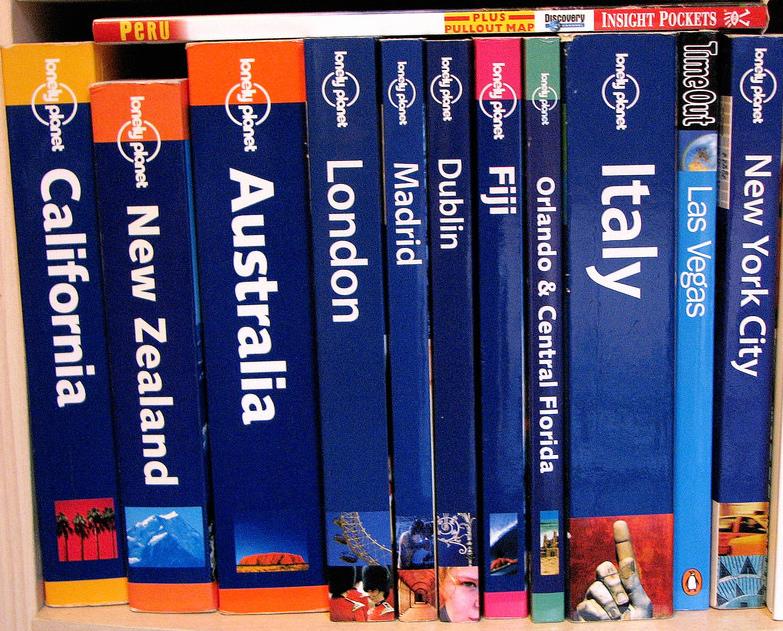
Travel guidebooks like those produced by Lonely Planet, Rough Guides, DK and other companies can be very useful for researching the budget lodging options in a wide range of destinations.
Good guidebooks will give detailed information on room rates and provided amenities for a wide selection of hotels, guesthouses and other sleeping options.
You can highlight or underline the budget options listed in your guidebook that pique your interest and you’ll have a few leads prepared for when you arrive.
Paper guidebooks are also very useful in that they work offline and don’t rely on battery power. You can fall back on the map in your guidebook to find the guesthouses on your shortlist if your phone battery dies after a long journey to your destination.
You do obviously have to stay up-to-date with the latest versions of guidebooks though, as room prices can change dramatically over the course of just a few years.
If your guidebook is out of date, you could also easily find yourself searching for guesthouses that have shut down several years ago and that no longer exist.
Properties that were formerly low-budget options may also get upgraded to mid-range or upscale properties if they are making good money, leaving you wondering why there's a 5-star hotel in the place of that cheap hostel you stayed at only one year ago.
Bottom line: make sure your guidebook is up-to-date.
Travel websites and blogs
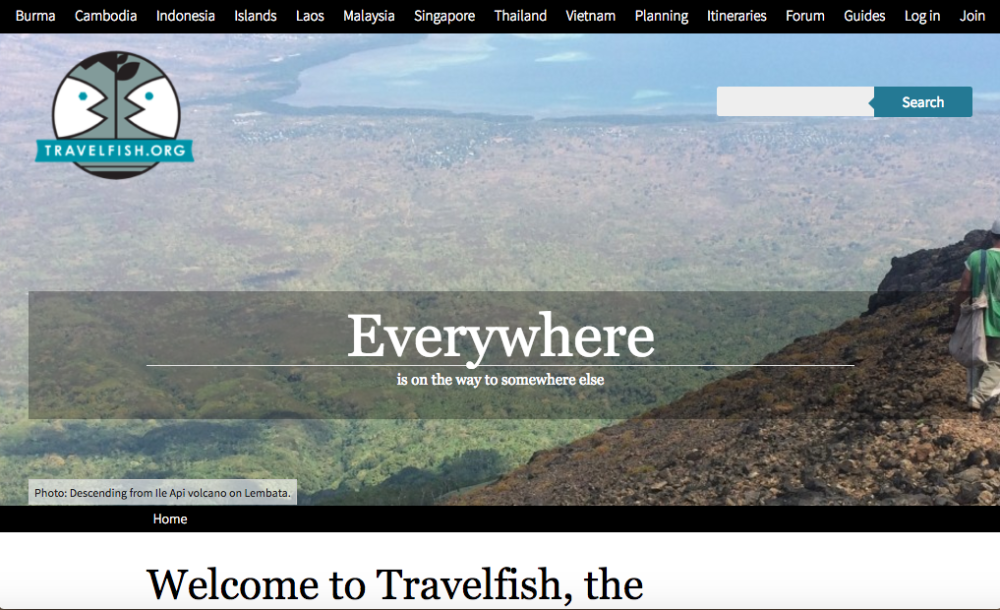
There are several useful websites that list the cheapest and best places to a sleep in many popular and many not so popular destinations around the world.
Budget travel blogs
One thing you can do is to follow the blogs of your favourite shoestring budget travellers and check if they mention where they stayed if they’re already been to and written about the destination that you’re visiting.
Here's a useful list of ten of the best budget travel blogs to follow.
Travelfish
If you’re travelling in Southeast Asia as in independent budget traveller, we highly recommend the Travelfish website as a great resource for guidance on where to stay.
The website provides detailed reviews of guesthouses and hotels in various destinations in the region and categorizes the properties according to your budget (backpacker, flashpacker, mid-range, top-range etc.).
They also usually provide accurate, up-to-date information on the walk-in rates for all the different types of rooms on offer at each property.
As a signed up member you get free access to 4 of their PDF travel guides. However, the full catalogue of 226 destination travel guides in PDF format is only available to those who have upgraded to become premium members, which involves paying a yearly subscription fee of $35 and comes with a few additional perks.
Wikitravel
Wikitravel is an open-source project based upon the wiki model that aims to create a free, up-to-date, reliable world-wide travel guide.
It’s another very useful resource when researching where to sleep with detailed listings of the sleeping options available in many destinations. You can also view up-to-date rates for most of the different room types offered by the listed properties.
Tripadvisor
The American Internet company claims itself to be the world’s largest travel website with over 300 million users.
Tripadvisor is known for its user-generated content related to travel. You can find reviews of thousands of properties, attractions and restaurants all around the world.
There are also free user-generated travel guides for various destinations and public forums where you can find additional information relating to budget accommodation.
Many travellers use the website to plan their entire trip, figuring out everything from where to stay, where to eat and what to see. You even book your accommodation and flights indirectly through the platform as they’ve partnered with OTAs like Booking.com, Agoda and various others.
Fellow budget travellers
Talk to fellow budget travellers that you meet on the road and find out where they've been, where they stayed and how much they paid for a room. This is one of the best ways to get up-to-date information on the best budget sleeping options in your next destination.
#27 - Make a beeline for the backpacker enclave (if one exists)
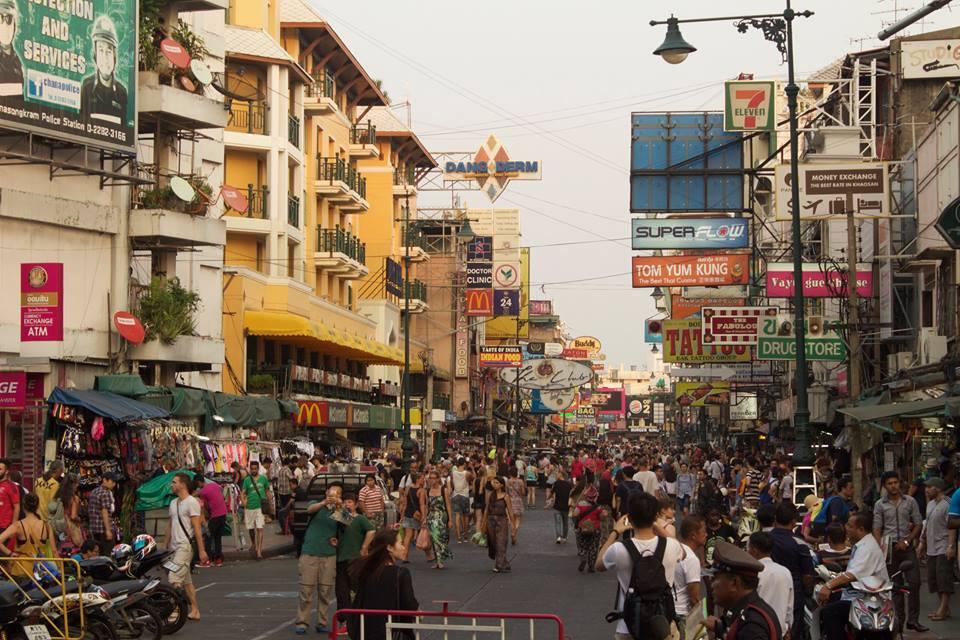
In cities or large towns that receive a lot of backpacking visitors, a special area often develops that specifically caters to their needs and thrives as a result of their spending.
Most budget travellers know to head straight to these so-called “backpacker enclaves” for the best chance of securing a cheap dorm bed or private room.
Backpacker enclaves will even save your ass if you turn up at a new unknown destination without having prepared any leads beforehand.
However we still recommend making a shortlist when you're going to be staying in a backpacker enclave, just so that you find a cheap room as quickly as possible.
In backpacker enclaves you’ll normally find a multitude of very affordable eating and sleeping options, normally concentrated into a compact maze of streets and alleyways or even spread out along a single street or two parallel streets.
The competition resulting from the large number of different hotels, hostels, homestays and guesthouses vying for travellers’ attention in these backpacker enclaves helps to keep the room rates very low.
At the lower end of the price spectrum, you can expect to find fan-cooled private rooms with shared outside bathrooms, large multi-bed dormitories and other basic amenities that satisfy most backpackers who are just looking for the minimum standard of accommodation at the lowest possible price.
A good example of a backpacker enclave is the area centred on Khao San Rd in Bangkok. The place is a magnet for low-budget travellers and as a result of this, a lot of cheap guesthouses and hostels have sprung up here.
To give you an idea of how cheap some of the rooms are, you can find fan-cooled communal dormitories with beds going for as cheap as 100 baht ($3) per night and private single rooms starting at 150 baht per night.
So if you’re overnighting in a destination that receives a lot of backpacking visitors and you’ve come unprepared with no idea about where to stay, ask yourself these two questions: is there a backpacker enclave? If so where is it?
If there is a backpacker enclave, you'll be able to compare dozens of budget properties within a short period of time by simply walking around on foot and calling into the properties that catch your eye for deeper probing.
Unfortunately, although backpacker enclaves are great when you want to find cheap lodging, they do often come with certain elements that many travellers won't find agreeable.
They usually cater to a culture of hedonism and unbridled self-indulgence; young twenty-something backpackers come to enjoy intense partying, loud thumping music and unchecked alcohol consumption with many bars remaining open into the early hours of the morning.
There may also be prostitutes or ladyboys lurking on street corners, local drug dealers and tuk-tuk drivers whispering offers of drugs every time you walk past them, a plethora of hawker stalls selling unhealthy fast food like kebabs, pancakes and burgers, constant harassment from smooth-talking salespeople and a significantly higher incidence of pickpockets, bag-snatchers, con-artists, fortune-tellers and other such nuisances.
Destinations that have developed around a small town or village and that are popular with budget travellers may not have a backpacker "enclave" as such since they are so small.
Rather, the entire town or a sizeable portion of it will cater towards the tourists that overrun it and provide a sizeable portion of its income. A good example of such a place is Vang Vieng in Laos.
#28 - Continue your investigation on foot if your leads all fail

If the properties on your shortlist turn out to be unsatisfactory, too expensive, fully occupied or if you just have a gut feeling that there’s a better deal out there somewhere, don’t be afraid to continue your search on the ground by calling into several more properties.
At this point you're not calling into any properties that you already know about from the research phase, since you already ruled out all those when making your shortlist.
You're instead looking for new properties that you couldn't find out any information about beforehand and yes, there will usually be plenty of such properties. The world has not yet been fully mapped.
This is often the stage when the real bargains and hidden gems are found. Hence an extended investigation is usually well worth the effort.
Why continue the investigation on foot? Because it costs money to hire a driver to take you around and we're trying to save money here. If you have your own vehicle it might be better to drive around of course, but most budget travellers won't have their own vehicle.
In our experience, the really low budget properties tend to cluster together in most destinations anyway, so you can usually get around to enough properties to make an informed final decision without needing to hop in the back of a vehicle.
The exception to this is destinations where the budget properties are very widely dispersed and we'll address how to approach that less common scenario a bit later in the article.
How many properties should you call into before finally calling it quits?
The general rule we follow is that the longer we’re staying in a particular destination, the more time and effort that we will initially invest in finding properties and comparing deals.
Just an extra hour or two of detective work could yield significant extra savings that repeat night after night, so if you're staying longer, it's worth looking a bit deeper.
Searching for street deals efficiently
Even if there are plenty of properties to be found in a compact area when you arrive, you still want to go about the matter of hunting for a bargain as efficiently as possible.
The following tips will help you to find the best deals as quickly as possible with minimal wastage of time, money and energy.
#29 - Know what types of property to look for
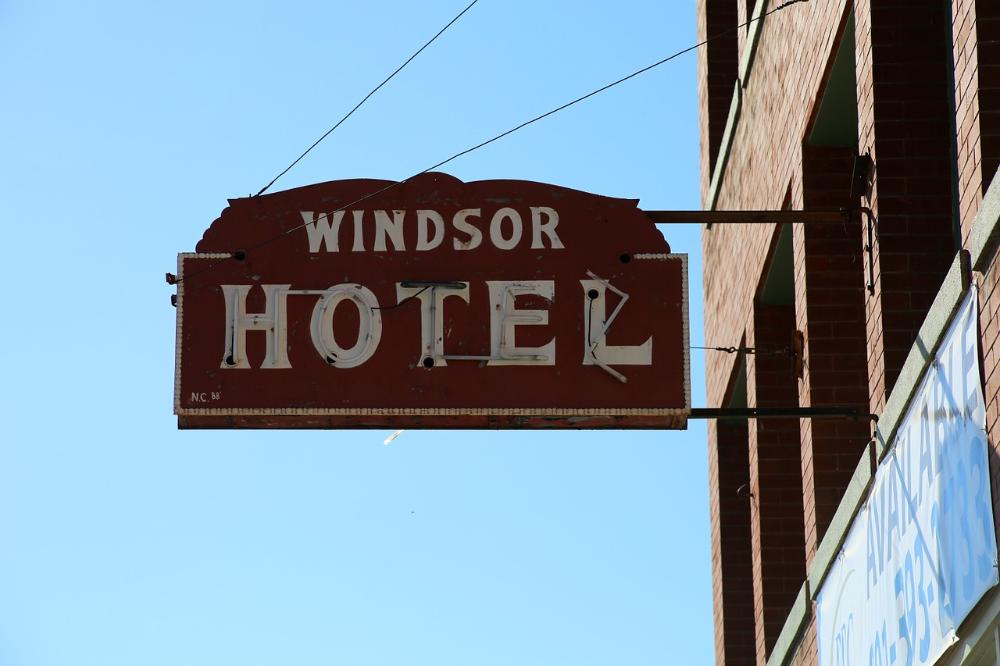
If you’re looking for shoestring budget accommodation, you can often rule out unsuitable properties just by looking at the name or the title of the property.
This is the real-world equivalent of applying a price filter when you’re booking online so you don’t waste your time calling into properties that are way outside your budget.
In general, properties that end with “guesthouse”, “hostel” “homestay”, "place", "inn", "motel" and so on will be cheaper than “hotels”, “resorts”, “villas”, “cottages”, “bungalows”, “lodges”, "chalets" etc. and will probably be worth investigating even if you know nothing about the place.
However, we must stress that this is merely a rule of thumb and it is not always true. For example in Dalat, Vietnam, the cheapest room we could find in the whole city was found in a large budget hotel with low occupancy rates.
What we would say is that if you see a property that ends in these "keywords", be suspicious, but don’t rule it out completely.
We would suggest leaving the more ostentatious sounding properties until the very end of your bargain hunt and only investigate their room rates if nothing decent turns up in the meantime.
You should also generally avoid anything with the word boutique in it, even if it’s a boutique hostel or boutique guesthouse.
These types of pseudo budget lodgings are becoming increasingly common in Thailand. Being labeled as hostels or guesthouses, the names can be misleading, but these places are not true budget sleeping options.
You can also tell at a glance sometimes if a property is within your budget, just by looking at its outer façade or reception area as you walk by.
Does it look extravagant or basic and humble?
Is it surrounded by lush landscaped gardens and at the entrance does it have a security guard, CCTV cameras, high boundary walls and a big reinforced steel gate?
In the lobby can you spot luxurious furniture, formally dressed employees, polished marble floors, chandeliers or other tell-tale signs of extravagance? These types of properties are not going to be cheap.
While the "judge a book by its cover" approach won’t always be 100% accurate, it should definitely allow you to rule out the more expensive properties with absolute certainty.
#30 - Set down your luggage somewhere first
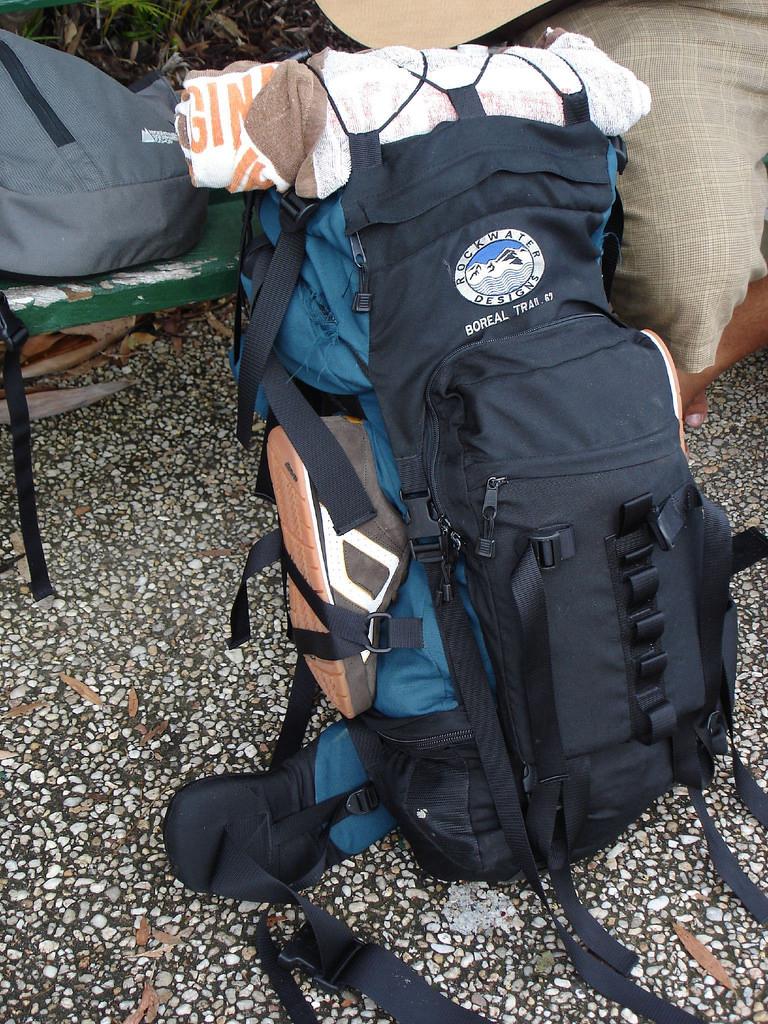
Traipsing around the streets in hot weather with a heavy backpack trying to find a cheap room can be one of the most exasperating parts of the travel experience.
Even when the weather isn’t hot, it makes sense to offload your luggage somewhere before you go around hunting for lodgings on foot, especially if your luggage is really heavy or cumbersome. If you don't do this, you may run out of steam before you find the best deal in town.
If you’re travelling with a trusted partner this is easy to do, as you can just ask your partner to wait somewhere and mind the bags as you venture off to look for cheap rooms.
Good places for your partner to wait are shopping malls, restaurants, cafés, green spaces and in the lobbies of other guesthouses that you've already rejected or are still considering.
If you’re alone you can leave your backpack with one of the guesthouses that you've already called into and ask the owner to keep an eye on it for you. Make an excuse for leaving and say you'll be back shortly. Don't leave any valuables though - it's better to take those with you.
Also, if you stop by a restaurant and eat something the staff may also be willing to keep an eye on your bag for a while.
#31 - Search different areas simultaneously if possible
If you’re travelling with a partner or in a small group, you can definitely save time by assigning each person to investigate the sleeping options in a different area or street. Everybody can then arrange to meet back at a central meeting point at some agreed time to discuss the findings.
This strategy will be easier to execute if the group can find a trusted place to temporarily look after their luggage like a hotel, restaurant, guesthouse or other suitable establishment.
#32 - Use the Maps.me app to help you find new budget properties
.png)
Instead of wandering around the streets blindly looking for new budget properties to investigate, it’s best to summon the help of technology to save you time.
Pull up the Maps.me navigation app and then go to -> search -> categories - > hotel - > view on map.
This will highlight all the sleeping options that the app knows about on the map with a big blue dot, including hostels, homestays, hotels, guesthouses etc.
The map will hopefully display a few budget properties that you didn’t see mentioned anywhere when you were carrying out research beforehand. One of these properties could hold that elusive bargain.
If your phone is dead when you arrive at the destination because of a long journey without access to a power outlet, try to find a café, restaurant or a random power outlet somewhere and charge it up a bit first.
We once charged our phone from a random plug point on the wall inside a shopping mall. Even better, carry a power bankwith you so that you never arrive with a dead phone.
Many buses and trains do not provide power outlets for charging your devices and even the best batteries can get drained to nothing by the end of a long journey.
#33 - Get a hold of a tourist map to find even more properties
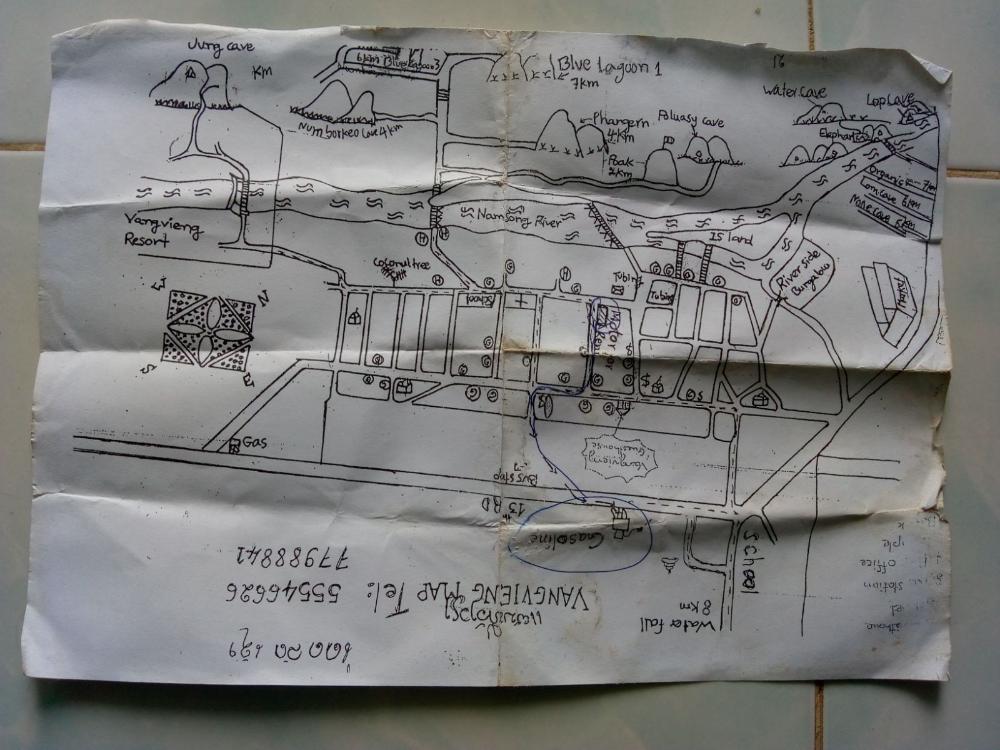
Apps like Maps.me are not perfect and will often fail to display certain properties or will get the locations of properties wrong. Also, you may not always have a working phone or your phone might be dead when you arrive.
That's why a locally available tourist map may come in useful sometimes. These can often be really detailed and thus may really help you to find the lesser-known properties.
If there’s a tourist information office in town, you might be able to get a free map from there. You can also check with travel agents, tour booking agents, properties that you call into, bicycle/motorcycle rental shops and various other outlets for any free tourist maps that they may be handing out.
You may also sometimes find local maps inside or just outside some bus stations, railway stations, parks and in other strategic locations in towns and cities.
If you happen to be travelling around Northern Thailand or Northern Laos you should definitely consider buying a few of the extremely detailed maps made by hobomaps, which will really help you to find all the lesser-known accommodation options.
They have maps for all the most popular tourist destinations in those two regions and the maps can be viewed for free online or downloaded as a PDF for offline reading for just $1.
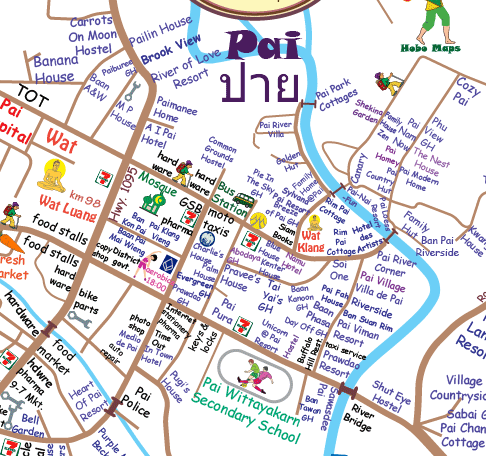
#34 - Look out for discreet properties
Sometimes not even an app, local tourist map or other map can help you to find every budget property.
There will occasionally be one or two properties that defy all attempts to be charted and these often turn out to be the humblest and cheapest properties of all to stay at (and not necessarily lacking in amenities either).
Such properties will usually be quiet homestays or humble family-run guesthouses and will normally be found well off the main drag at the ends of alleyways and dirt tracks or perhaps hidden away in the labyrinthine backstreets of local neighbourhoods.
The usual way that you’ll find these properties is by keeping your eyes peeled for them as you walk about the streets. Don’t expect to see huge flashing neon signs though.
These properties will usually only be advertised by an inconspicuous wooden sign, often with hand-painted letters and an arrow pointing you in their direction. Following these signs to see where they lead might sometimes feel like going down a rabbit hole but that's all part of the fun.
#35 - Look out for brand new properties
Brand-new guesthouses and other properties can often offer great bargains since they’re looking to get the word out about their business.
When we arrived at Uppuveli beach on Sri Lanka’s east coast, we initially had great difficulty in finding cheap accommodation, even after calling into more than fifteen different properties.
We were fortunate to encounter a man who had opened a brand new guesthouse just a few hundred metres inland from the beach. He drove us out to his new guesthouse in a tuk-tuk and gave us a much better deal than anything we had seen thus far, on account of the property being newly opened.
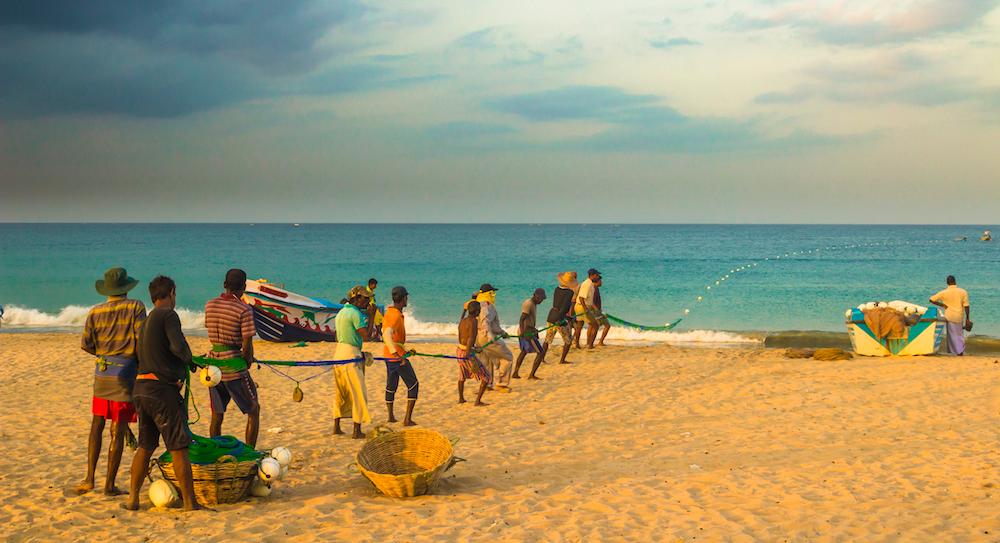
#36 - Get suggestions from local residents and property owners
The local residents are often your best source of information when it comes to finding cheap accommodation.
As you walk about the streets you might consider asking for suggestions from any local residents that you run into and hopefully they’ll be able or willing to communicate with you.
Make sure you tell them exactly what price and amenities you’re looking for so that they don’t refer you to unsuitable properties.
At each property that you call into you also have the opportunity to ask the staff or the owner about other sleeping options in the vicinity. Most properties will surely know all about their nearby competitors and they should be able to direct you to a place that’s more in line with what you’re seeking.
#37 - Try to negotiate a discount at every property you investigate
Finding a property that’s already pretty inexpensive and that adequately meets your needs is a great starting point. But you’d be surprised how often it’s possible to reduce the room rate even further by haggling with the owner or the receptionist.
Generally you will be more likely to get a discount when room occupancy rates are low. This takes us back to why you should consider travelling in the off-season or shoulder season and why you should look for unobtrusive guesthouses and homestays that few other travellers know about due to their lack of showy advertising or offbeat location.
But regardless of the room occupancy rates at the time of your visit, you cannot know for sure if the price is negotiable or not unless you give it try, so always give it a shot.
But instead of just asking for a discount without rhyme or reason, here are a few ways to incentivize your offer and make it far more likely that you’ll be able to strike a bargain:
Stay more nights than the typical traveller (5+ nights ideally)
This one of the most powerful tactics for negotiating down the rate of a room and we use it all the time.
At some guesthouses we have spotted special offers on display like “stay 5 nights, get 1 night free”, so staying a bit longer can sometimes have its perks.
Sometimes just the promise or the suggestion to the owner that you’re planning to stay for multiple nights is enough to get you a substantial discount in the room rate.
We’ve found that a suggested stay of just three nights can often be enough to trigger a discount but usually the longer you can stay, the bigger the discount and the greater the likelihood of being granted one in the first place.
But sometimes the mere promise that you’ll stay longer isn’t enough. The owner might only be willing to give the discount if you can pay the full amount for your promised duration of stay upfront.
With this measure in place, you obviously can’t take advantage of the owner by paying as you go at the discounted rate and then abandoning the room prematurely, but we don’t suggest that you try to do that anyway.
Unfortunately, paying upfront for a long stay can affect you negatively if an unforeseen problem crops up with the room (bed bugs, broken WiFi etc.) or if you have a change of plans and decide to leave mid-stay. If you have to leave prematurely, there’s no guarantee that you’ll get your money back for all the unused nights.
As we also mentioned earlier, if you’re willing to travela lot more slowly and spend weeks or even months in a single destination, it opens up a whole new world of cheaper accommodation like long-term rentals, apartments, co-living arrangements etc. which are nearly always going to be cheaper than any short-term lodgings.
Whether this type of behaviour can truly be considered "travel" or more sedentary living is a debate that will probably never be resolved.
Make it expressly clear that you’re only interested in the cheapest room they have
Most hotels and guesthouses offer several different room types at different rates.
If you just walk in and ask the price of a room, the receptionist will often quote you on one of the high-tier rooms first, not informing you that there are cheaper room types available.
Some travellers would walk away at this point, thinking that the property is too expensive and not realizing that there are cheaper rooms up for grabs.
You have to make it explicitly clear that you are only looking for the cheapest available room option, even if that means you will have to do without certain amenities.
It's a good idea to ask to see the room price card so that you can gauge your options and point to the cheapest one. Most guesthouses and hotels will keep one at the main reception desk. The card will show you all the different types of room on offer and the prices of each.
But let’s say there’s no room price card and you’re unsure about what types of rooms the property has. In that case, you can just say that you want the cheapest available room and then decide if the amenities are satisfactory.
In some properties, the problem is that all the rooms will be out of your budget because they all come with more costly amenities like AC units (in addition to fans), hot water and free breakfast included.
If you’re in this kind of scenario, you can explain to the owner that you simply won’t use or take advantage of the AC, hot water, free breakfast etc. even though they're provided. By doing this you'll often be able to bag a nice discount.
Many properties will also have a special discount room that they don't normally sell due to it having some defect or being below the minimum standards of most guests.
But if you can demonstrate that you'd be perfectly happy to stay a room like this and that you just want to pay the minimum price, there's a good chance that you could bag one of these rarely offered rooms.
Mention that you’re an influencer
If you run a travel blog that gets a substantial amount of visitor traffic or if you’re a social media influencer, it should be possible for you to leverage that to your advantage at some properties.
Some travellers will offer to review and promote a hotel or other property to their audiences in exchange for a steep discount or perhaps even a completely complimentary stay.
This strategy will usually work best when you contact the property a few days or weeks in advance, perhaps through a Skype video call and explain who you are, how large your audience is, how engaged your audience is with your content and how interested your audience would be in that particular property.
When you provide all this information the owner has a chance to properly assess you and decide if your marketing efforts will be able to drive enough new customers to his business for him to justify the costs of your stay.
Some hotels are also not morally above bribing customers to leave positive reviews on websites like tripadvisor.com. A good rating on Tripadvisor is extremely important for many properties and they will often go to great lengths to prevent bad reviews and to foster positive ones.
Knowing that positive reviews are a big incentive for many hotels, you could also offer to leave them a stellar review and rating on the platform in exchange for a discounted room rate. Again, being an influencer would increase your chances of success.
Ask to speak to the owner if facing problems
Sometimes an employee or a receptionist will inform you that they aren’t authorized to give you a discount without first speaking to the owner or the manger of the property. This will sometimes lead to a phone call where you’ll be asked to speak directly to the owner over the phone so that a price can be agreed upon.
Try not asking for a discount until you’ve been shown the room
We find that we’re most likely to get a discount if we’re willing to first let the owner or staff member working there show us the room before trying to negotiate one.
This gives us time to build a bit of rapport and it also means that the other party has invested some time and effort in trying to sell us the room, so it’ll be a bit harder for them to see us walk away if we’re not happy with the price.
Of course, this approach also means that you risk not getting a discount after spending a considerable amount of time at the property and perhaps going to the trouble of walking up five flights of stairs to view the room, so it can be a bit of a double-edged sword.
We’ve also written an entire article with our best tips on how to bargain, which should help you out immensely with this if you feel that your negotiating skills aren’t quite up to scratch.
Mention the competition
Sometimes it's worth mentioning that you found a great deal for a similar room at another property nearby and that you're just wondering if they'd be able to beat that price.
Once the owner sees that he's got some competition that's going to steal his next customer if he doesn't outdo them in some way, he may be willing to make concessions in the price.
If you can’t budge the price, ask the owner to add more value
If the owner absolutely refuses to budge on the price, it might be time to give up and try another property but one thing many travellers don’t consider is that the owner may be open to providing more value for that same price.
For example, you might ask if they would include a free breakfast or upgrade you to a slightly better room for the same rate. If you’re really strapped for cash, this solution might not always appeal to you as much as a discount, but it’s definitely better than nothing.
#38 - Always go the extra mile
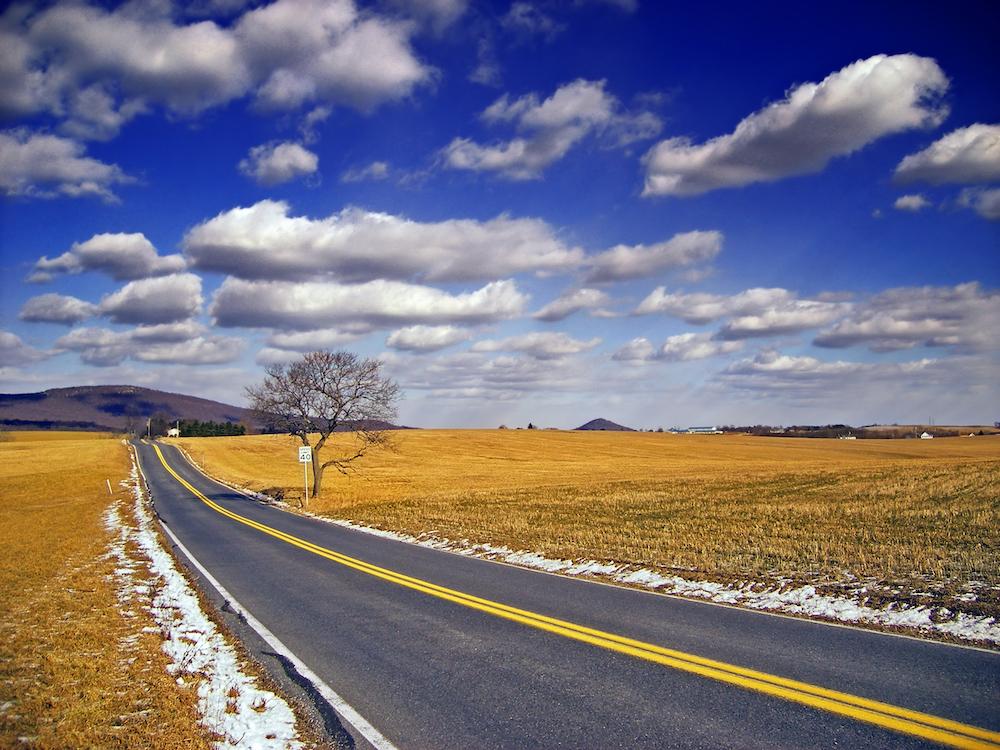
If the owner of a property does in fact agree to give you a nice discount, it doesn’t necessarily mean that you have to accept the offer there and then, although in many cases you may be happy to end the investigation at this point.
Sometimes we’ll still check out a few more properties even after we’ve bagged a great deal, just in case there’s an even better deal waiting for us around the next corner.
We’ll tell the owner that we’ll most likely take the room that we've just been offered, but that we just want to check a few more nearby properties for our own satisfaction. We might even tell a white lie and say that we're going to grab a bite to eat before we check-in.
The majority of the time the owner will be fine with this if you’re diplomatic about it and the original deal will still stand when you return some time later, having failed to find a better offer elsewhere.
That is of course unless you’re really unlucky and somebody else comes along in the meantime and manages to snag the room that was supposed to be yours.
#39 - When the lodging options are widely dispersed, settle down as soon as possible
If there’s no backpacker enclave in your destination and sleeping options appear to be widely dispersed instead of all concentrated into a small area, it usually won't be worth calling into as many properties as you normally would.
Visiting dozens of properties on foot under such circumstances will be too altogether too time-consuming and hiring a tuk-tuk or taxi of some description to ferry you around could cost you quite a bit of money, potentially negating any savings you make by finding a great deal.
Hence in these circumstances we recommend that you just settle for the first property on your list that you're reasonably happy with and that has a vacancy. Don't try to sniff out the best possible deal in town because it probably won't be worth the hassle to do an extended search.
So should you walk or hire a vehicle to get out to the properties you have in mind? It depends. If they aren't too far apart you should consider walking, since you probably won't be checking too many properties.
If the properties are really far apart a vehicle may be a necessary evil.
Costs incurred by hiring a driver include the fare for the service and potentially the driver's commission too, since the room rate may be hiked if the owner of the property that you decide on is affiliated with the driver.
Drivers may also waste your time, especially tuk-tuk drivers. These guys will sometimes ignore your request to be taken to a specific property, so that they can instead bring you to a property that pays them a commission.
If anything like that happens, you can ask to exit the vehicle prematurely and refuse to pay the fare.
Some final tips
It’s very easy sometimes to only think about reducing accommodation expenses in isolation to other expenses but you also need to look at the bigger picture so that you save the most money overall.
The location of the property you stay at and the amenities that it provides can have an influence over other important expenses in your travel budget like food, water and transport expenses.
Some properties can also come with hidden costs that can negate what you initially thought was a great deal.
#40 - A cheap room in a bad location can be a false economy
Even if a room is really cheap and you’re perfectly happy with all the amenities, it can be a false economy if it’s in a bad or very isolated location.
If a property is very isolated you may incur additional daily transport costs from commuting into the nearest town or city to visit important sights and attractions or even just to get to the grocery store or to a restaurant for your evening meal.
Although more isolated properties will often have their own restaurant to make up for the bad location, the problem is that the food will normally be overpriced.
This is because guests will normally be willing to pay more for food that's readily obtainable and that doesn't involve making a journey to the nearest village, even if making that journey would save money.
One other thing - if you’re staying in a well developed area that has plenty of nearby amenities like grocery stores, restaurants and so on, you may still be in a bad location if the area is very affluent with a predominance of upscale restaurants, expensive grocery shops and a dearth of cheap eateries.
#41 - Consider how free amenities and services can save you money
Free amenities and services really can save you a lot of money provided that the room price isn't hiked to cover the extra costs to provide them.
If a room that comes with all the bells and whistles and waived service charges is a lot more expensive than a room that doesn't, it may not be saving you anything.
No service charge
Service charges are more commonly associated with mid-range and high-end properties but we did once encounter a situation where we were asked to pay a service charge for a budget hotel room in Sri Lanka.
We had initially agreed with the owner upon a fixed nightly rate for the room and there was no mention of a service charge but when it was time to pay the bill as we were checking out on the final day, he scribbled an extra figure on the piece of paper, dubbing it a “service charge”.
We refused to pay it, since there had been no prior mention of this charge and also since there had been no services provided. We were not brought free tea and coffee, our room was not cleaned, our sheets were not changed etc.
Free parking
If you’re going to be arriving at the property in your own vehicle you may want to consider this one. Overnight parking can be expensive in many cities. Does the property provide parking facilities? If so, is it free or will you have to pay for it?
Free cleaning service
In most budget accommodation you'll get the room cleaned free of charge once in a while.
However, one time you might have to pay a cleaning fee is when booking accommodation on Airbnb. It doesn’t appear for every property but it’s often one of the additional charges added to your booking total.
We’ve read horror stories about travellers who have paid extortionately high cleaning fees when booking a room on the website, only to turn up and find the room in an appalling condition of neglect and filth, where clearly nothing had been cleaned prior to their arrival.
Free WiFi
It’s rarely the case in regions like Southeast Asia that you have to pay extra for Wifi since it normally either comes free with the room or it just isn’t provided at all.
However there are some properties around the world that will charge you an extra fee for Internet access, whether it be via Wifi or a desktop computer in the lobby.
If a property doesn't have Internet access at all you may incur costs buying mobile data, buying expensive coffees to use the WiFi in Starbucks or paying to use a computer at an Internet café.
Free hot water
Hot water is often an amenity that’s included in the price of a room, but when it’s not included in some of the cheaper rooms, you may be expected to pay something extra for hot water usage.
For example, when we stayed at Wisma Sibayak guesthouse in Berastagi, Sumatra, we took one of the cheap wooden huts for 60,000 rupiah per night ($4.50) but there was also an extra charge of 10,000 rupiah ($0.75) for each usage of the hot shower.
Berastagi is also a place where it can get a little chilly at times (elevation is 1,300 m above sea level) and hot water is much appreciated at times, so this charge was something we had to consider.
Free breakfast
A free breakfast is definitely not an amenity that will always save you money but it may in some cases.
You need to look at other similar budget rooms in the area that don’t include a free breakfast and see how much cheaper they are. If you think you can get an equivalent breakfast on the street or prepare your own for less than the price difference, then it’s a false economy.
Free drinking water
It can certainly make a difference to your daily expenses if your guesthouse or hotel provides you with a water cooler or free daily water bottle handouts.
It means that you don’t have to buy costly bottled water during your stay, especially if you’re travelling with a refillable water bottle.
Free boiling water
In some properties the same water cooler will dispense both chilled and boiling (or near boiling) water.
If you can get free boiling water at your guesthouse it can potentially save you money on food by allowing you to prepare cheap foods like soups, instant noodles, instant pasta, precooked couscous, instant oat porridge, tea, coffee and so on.
Self-catering kitchen
A self-catering kitchen can obviously be an extremely useful amenity for saving money on food when you’re in a destination that doesn’t exactly have the cheapest eateries.
Most hostels in Europe will provide self-catering kitchens but you will also occasionally stumble across budget properties in Asia that provide them too and these won't always be hostels. If you’re staying at a campground you may also find some kind of gas stoves or cooking facilities provided there.
Electrical appliances
If your property has a refrigerator, it can help you to save money on food by allowing you to store perishable foods like milk (of course you can still store UHT milk without a fridge), butter (especially in hot climates where it melts), certain types of cheeses, yoghurts, meat, fish and other foods that are best kept chilled.
Being able to store these kinds of foods will help you to avoid eating out frequently and overspending on food. Hostels often provide fridges where every guest can keep store their own labelled food items to help prevent confusion or pilfering by fellow guests.
An electric kettle in the room can also help you to save money by allowing you to boil and drink the tap water instead of you having to buy costly bottled water.
A kettle also allows you to make your own cheap tea and coffee and any foods that just require the addition of boiling water. You can even cook proper food like rice, eggs, noodles, pasta etc. from scratch inside an ordinary kettle. This is a hack that few travellers know about or take advantage of.
Free soap, shampoo and shower gel
These free provisions won't save you a whole lot but they do obviously cost money to buy in a shop when they're not provided. If you tend to use these products frequently you're obviously going to benefit a lot more than a traveller who doesn't.
Conclusion
There are a plethora of tricks and hacks that you can exploit to start saving money on accommodation whenever you're travelling.
Even if all that fancy stuff involving credit card points, membership programs, coupons, last-minute deals, secret hotels and so on is too complicated for you, you'll be glad to know that you don't need any of it to get amazing deals.
In fact, you will get the best possible deals by keeping things as simple as possible and just implementing the basic tips.
Travel to destinations where accommodation is already cheap, travel in pairs or trios, time your visit right, be willing to stay longer, do your homework, sniff out the offbeat properties, haggle with the owners and you'll be paying way less for your lodging than anyone who's using any of these fancy booking tricks.
If you liked this article or found it helpful, please share it with other travellers. Do you have any tricks of your own for saving money on accommodation? Please share your ideas with us in the comment box below.
Pin this article!
JOIN OUR LIST
SUPPORT US
FOLLOW US
ABOUT US
Our names are Eoghan and Jili and we hail from Ireland and India respectively.
We are two ardent shoestring budget adventure travellers and have been travelling throughout Asia continuously for the past few years.
Having accrued such a wealth of stories and knowledge from our extraordinary and transformative journey, our mission is now to share everything we've experienced and all of the lessons we've learned with our readers.
Do make sure to subscribe above in order to receive our free e-mail updates and exclusive travel tips & hints. If you would like to learn more about our story, philosophy and mission, please visit our about page.
Never stop travelling!
FOLLOW US ON FACEBOOK
FOLLOW US ON PINTEREST
-lw-scaled.png.png)

